#shingeki no kyoujin meta
Explore tagged Tumblr posts
Text
A Theory on Hange Zoë's Backstory: Why Could They Be Estranged from Their Family?
I always had this theory from before Isayama said that Hange seems to be estranged from their family, but the disclosure of this new information didn't disprove it in any way, and in fact, added more to it.
The most general reasons for being estranged from family is due to the family member leaving themself, with reasons such as of some level of abuse, drastically differing life views or values, unresolved conflict, etc., or due to the family itself ostracizing the individual, for whatever reason that may be. Considering the nature of Hange's character—extremely inquisitive and knowledge-driven—then it is safe to assume that, since they are considered eccentric even in the Survey Corps, they were likely shunned in society as well, especially as a child, when social skills of a young mind have yet to develop enough to be aware of what should and shouldn't be said.
It is shown from the very beginning of AoT, too, that anyone taking interest in the outside world is considered a 'heretic,' a title that readers see Armin's childhood bullies using directly to address Armin. Books about the outside world, such as the one Armin gets from his grandfather, are outlawed by the government, and as is stated directly in the anime, anyone expressing interest in the outside world is rejected. Further exploring their estrangement in the context of that knowledge, could it be assumed that Hange is estranged from even their family due to their natural tendency to gravitate towards discovery?
The most likely location for such a drastic measure to take place could only be in Wall Sina, where government suppression and control is as rampant as ever, and the rich will do whatever it takes to stay rich—including the censorship of knowledge, the thing that Hange is shown to despise so much. The active support and maintenance of ignorance clashes directly with what Hange advocates for, not out of their desire for freedom, which seems to come later on after some character development, but out of their natural curiosity. If Hange had expressed interest in what could have been outside the walls, even if it were unrelated to the titans, this would be cause enough for societal rejection in Wall Sina, since their expectations are so strict.
Another possible factor that comes with this theory is the social status that Hange's family would have had, coming from Wall Sina, whose citizens are obviously high class. While it isn't specified about how society works within the walls, some details can be extracted about 'sub-groups.' There are the Wallists, the highly conservative church worshiping the walls as gods, the House of Lords in Parliament, and the Anti-Expedition Faction, a sub-group of the House of Lords holding influence over the expeditions of the SC, all of which can be plausible roles for Hange's family to hold, and all of which hold some sort of status in society which would be annihilated with the exposure of Hange's true personality and desires. This offers an incentive for oppression and exploitation of parental control over Hange as a child, feeding into the idea of clashing life values and conflict forcing alienation.
One thing that is not explained is Hange's initial abhorrence surrounding the titans. Readers are told only that Hange joined the Survey Corps out of resentment, and that they fueled themself with it to slaughter titans. Then they kicked the head of the 3-meter titan, and are shocked by the lightness of it, and then by the existence of titans as a whole. The shock rewires their mindset, making them think differently instead:

This shows that the scene where Hange kicks the titan's head is not only a moment of realisation, but also one of growing up. They realise that things are not the way that they often appear to be, which might apply to more than just titans.
To explain, another part of Hange's mannerisms should be explored. It seems as though they use escapism as a coping mechanism, or that, at the very least, they tend to avoid acknowledging their own emotions. The biggest example of this is the forest scene, where Hange thinks, albeit not in a completely serious manner, about running off to live in the forest, to escape the troubles of the war. It is a fleeting thought, but it still brings them some semblance of comfort. There is also this scene from Chapter 89:


Prior to this, Historia had been reading the letter that Ymir had written to her just before she died, so she'd obviously be in a melancholy mood. Then she softens the mood further, expressing both her pride for her friends, and her concern, as they do not seem to have been given the time to properly mourn their late comrades. When she basically says, "I thought you'd all be sadder about this," Eren responds, "That's because we haven't processed it yet."
Immediately after, Hange says, "We better get going soon," as though to rush them along or to say, in regards to Eren's message, "And we're not going to right now," lol. Given the additional lack of panels or dialogue to create time between Eren's words and Hange's, it gives off a sense of urgency in Hange's words, as though it is they themself who needs to get a move on in order to escape the vulnerable atmosphere of the room. It is also interesting that they choose this moment to 'interrupt,' since Eren is saying outwardly that none of the Survey Corps have taken in what happened during the Return to Shiganshina. The feeling extends to Hange as well, but they are the only one out of the group to rush the others back to business.
There is also Hange's unprecedented dedication to their research, going about it with an almost obsessive behavior. While this can definitely just be their passion and their means of dedicating their heart to the cause of the Survey Corps, it is also undeniable that they work themself to unhealthy lengths to do so. However, a lot of their research stems from pure love for it, so this is merely an additional, slightly more biased point on my part.
Still, I digress. No matter what how abusive a family is, there's always going to be a profound sense of pain with estrangement from them. If not from being disowned from the bloodline itself, but from the sadness of knowing that a family, that parents, are supposed to love you—but that yours don't. This in mind with their coping mechanism of avoidance, is it possible for Hange to have channeled this pain into anger, which projected itself onto the titans (whether consciously or not), in order to escape the pain of their familial abandonment?
I have a personal opinion that Hange wouldn't be able to say something like, 'Screw your inferiority complex! Don't run from reality!' without knowing just a little bit about that themself. If their theoretical past with society has anything to say for them, then an inferiority complex might be a plausible effect of being shunned, especially as a child. They might blame themself for being an outcast, because what can children do but blame themselves? When adults portray themselves as the ultimate beings to be trusted and to lean on, even as they abuse children, and especially if they are the ones who are supposed to love children, it is difficult for other possibilities to cross a child's mind. However, with the development of the mindset of 'Things may not be the way they seem on the surface,' Hange turns their world upside down.
This makes the titan-kicking scene even more of a pivotal point. This is where they learn not only to embrace the world and the titans, but themself as a part of it. Learning that things can be questioned, that things that were once solidified in the mind can be overturned in the blink of an eye, or the kick of a leg, provides the basis for Hange's realisations surrounding their past, how none of it was truly their fault despite how it was made to appear on the surface, and how there is really nothing wrong with studying the outside world—titans included—despite the perspective pressured on them from birth. They learn to pursue their love instead of their hate this way, wanting to see things from all angles always, because they know that knowledge is temporary. Any knowledge in possession now can be disproved with just one detail. In this sense, the titans, ironically, provide Hange with their first taste of freedom—the one freeing them from themself.
They are able to fully embrace the Survey Corps now, pursuing freedom instead of hatred, knowledge instead of blind acceptance, and eventually becoming the incredible 14th commander showcased in the real story.
#attack on titan#hange zoe#shingeki no kyojin#hanji zoe#aot#hange zoë#snk#attack on titan meta#shingeki no kyoujin#shingeki no kyoujin meta#snk meta#aot meta#i WILL write this one day#will as in hopefully#Hange Zoe meta#hange zoe analysis
80 notes
·
View notes
Text
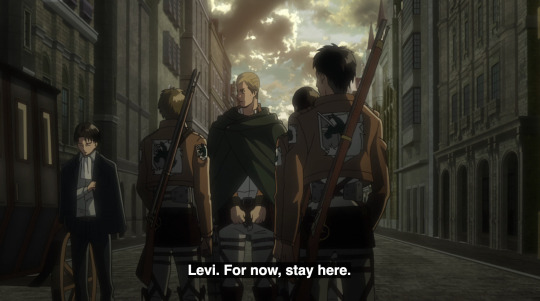
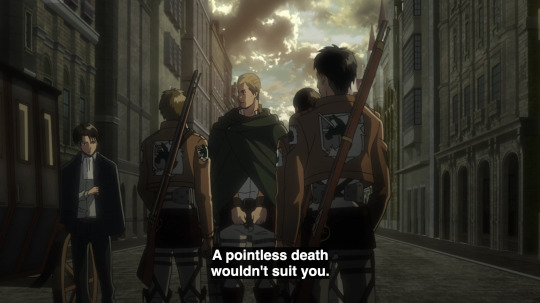
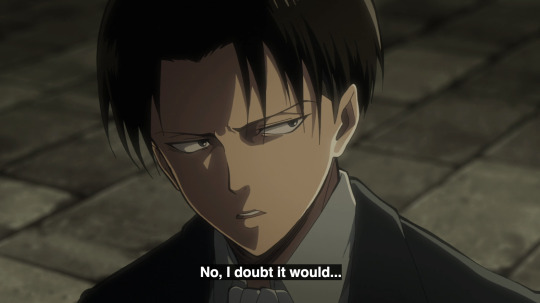
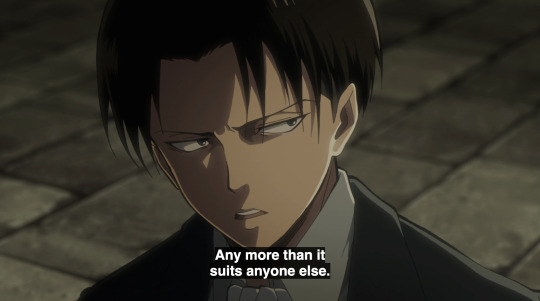
I saw @acmeangel's analysis post on this scene, which is fantastic and which everyone should read, and I was going to add my thoughts to their post, but then it got too long (as usual), and I didn't want to hijack their analysis, so I decided to just make my own, haha. This really is an important scene which essentially encapsulates the difference between Levi and Erwin and which I think ultimately showcases what makes Levi such a genuine hero.
One of the overarching messages of AoT is that we shouldn't give up our humanity in pursuit of an ideological goal. I've talked a lot about how Levi puts his trust in Erwin and admires him so much because he sees Erwin's ability to set aside his personal feelings for the greater good as a virtuous quality, one which Levi hopes to be able to one day emulate. Levi sees Erwin as superior to himself for this ability, because Levi, no matter how hard he tries, isn't ever able to do the same. He's never able to set emotion aside. He's never able to make decisions detached from emotion. He's never able to send soldiers to their deaths without it tearing him apart and creating in him a sense of conflict. He's never quite able to convince himself that the thing these soldiers are dying for, which they choose to die for, is actually worth it, which is also why he works so hard to bring their goal to fruition. He can't accept that those lives were given in vain, but the only way to ensure that they weren't is to make their dream comes true. Because to Levi, it's their lives that have value, not the cause itself.
One of Levi's most defining traits, one which makes him stand out from basically every other character in the story, is that he has no dream of his own. Rather, he carries the dreams of others, makes himself the custodian of those dreams, and dedicates himself to their realization.
When he says in this scene that a pointless death doesn't suit anyone, what he's saying is that the cause Erwin is sacrificing soldiers for has to prove itself worthy of their lives, that it has to amount to something equal in value to those lives. Because that's the thing, Levi values life above all else. He sees each, individual life as being as important as the whole of humanity, and I think that aspect of Levi's character is demonstrated fully during the RtS arc, when he makes the choice to end Erwin's suffering. People argue and claim that Levi made the wrong choice here because they don't understand the thematic significance of it, getting caught up in speculation about whether Erwin would have been able to prevent the war between Paradis and Marley, whether Erwin would have been able to stop the Rumbling, etc... By getting caught up in that, they completely miss the point of how the story wants the audience to understand the importance of not giving up our humanity for any cause. It's trying to show us, through Levi's choice, why we can't let any cause or ideological movement turn us cruel. Levi's refusal to be cruel, his refusal to throw away his humanity, is meant to be seen as a good thing, and ultimately, ironically, it's Levi's humanity and compassion that makes him a superior man to Erwin.
Erwin tries to assuage his own guilt by telling himself that the lives given were for a cause greater than any, individual life. The cause of humanity. This is a narrative he clings to until he's forced to admit to himself that what he really was after in sending all these soldiers to their deaths was his personal pursuit of knowledge, in another attempt to assuage his guilt for the death of his father. Erwin sacrifices his humanity for a goal which is self-serving, and as he's forced to contend with that reality, his guilt grows tenfold, fracturing his psyche and self-identity. But even if his every decision had been for the so-called greater good, even if he'd been 100% dedicated to his duty as Commander, he still would have been left with a sense of guilt and self-loathing for sacrificing lives to this nebulous cause, just like Hange ultimately was, because the whole point of the contrast between Levi and Erwin is to show that, in the end, Levi is the one whom the audience should strive to emulate, not Erwin.
This moment in the story is driving home the point of choosing compassion over ideology, or even duty. Levi's choice is imperative in demonstrating to us that if we sacrifice our own, personal humanity, if we give into becoming cruel and unfeeling, if we lose sight of the very thing that drove us to wanting the world to be a better place to begin with, that being our compassion and desire to end the suffering of others, no matter how justified the cause may seem, we're essentially sacrificing humanity itself. Because it's when you start becoming cruel, for any cause, that everything turns to shit, both for ourselves and the world around us. It's cruelty that leads into justification of more cruelty, which leads into justification of atrocities. Bringing Erwin back, forcing him back into that role which was tearing him apart, mentally, emotionally, and spiritually, would have been purely an act of cruelty. But Levi isn't a cruel man. He's exactly the opposite. He's a man defined by his compassion and kindness. And what is AoT advocating for if not greater compassion and kindness in the face of a cruel world? It's telling us that the kind of compassion that Levi showed to Erwin in his dying moments is how we should choose to fight against the world's injustices and cruelties.
Because all the bad things that happen in AoT, essentially, happen because of a willingness to sacrifice ones humanity for ideology or for personal, selfish desires, and because it's those of us who retain our humanity and compassion, despite the cruelty of the world, and despite any supposed duty to any professed cause, that end up being able to live, as Levi says, with no regrets. This idea of sacrificing what we know is right for some abstract, nebulous goal of a better tomorrow is what leads to the destruction and corruption of our inner selves, and that, ironically, makes a better tomorrow impossible. If we become corrupted, if we allow ourselves to be lost to this idea of the greater good, in the end, it will only continue on the cycle of destruction.
Levi never sacrifices what he believes is right, never acts in any way which goes against his conscience. He never betrays his humanity. He maintains his compassion from beginning to end, and he never wavers in what he's fighting for, which, again, is every, individual life. That's what makes Levi a hero. His inability and refusal to set his personal feelings aside is, in the end, meant to be seen as the correct course. Because Levi's personal feelings have nothing to do with a dream or a goal. They have nothing to do with an ideology or movement. They aren't rooted in self-gain or greed. His sense of duty isn't to a cause, not to a country or an empire, or a sense of retribution or revenge. His duty, his obligation, is to doing what he feels, in his heart, is the right thing, what his personal feelings tell him is the right thing, no matter the situation or circumstances, no matter, even, if it turns out to have been the right choice or not. And that ties back into Levi's extraordinary compassion and empathy. It's his compassion and empathy which dictate his personal feelings of right and wrong, and his dedication to not betraying that sense is what ultimately dictates all his choices.
Levi thought of himself as a lesser man than Erwin because of this. Because of the way he wasn't able to set his personal feelings aside in the choices he made. It's why he chose to follow Erwin, because he thought it made Erwin superior to himself. But in truth, it's that quality of Levi's, that deep seated empathy, that makes him the better man. He can't detach himself from his compassion, he can't make choices without considering the consequences and impact of those choices on others, or even without making that consideration the principle factor in his choices, and that's a good thing. That's humanity. That's what makes the world a better place. By caring about how our choices affect others. That's not meant to be seen as a bad thing. Levi's kindness and empathy isn't meant to be seen as wrong.
Levi never betrays who he is, and he never betrays what he believes in, even as everyone around him does, at one point or another. That's true strength, that's true courage, that's true heroism. Someone who cares so much about people that he can't make a choice without factoring in the thoughts, feelings and desires of those people. Levi is meant to be the audience's role model, the character we're meant to want to be more like. Not Erwin. Because no matter how noble the goal we pursue, if we stop caring about each other in that pursuit, it all becomes for naught.
149 notes
·
View notes
Note
Why do you think Levi is subjected to more ableism in the fandom than other characters in the series?
You know, Anon, I’ve wondered the same thing. I’ve often thought about why Levi in particular faces so much ableism from fans, especially compared to other disabled characters in Attack on Titan, like Erwin (who was an amputee) and Hange (who lost an eye). I think one important difference driving the ableism against Levi is how his role in the narrative was tied so strongly to his physical prowess; he was literally hailed as “Humanity’s Strongest.” For many fans, this moniker became his entire identity. When they see Levi at the end of the manga with severe injuries—half-blind, facially scarred, and using a wheelchair—there can be an almost visceral reaction: they feel he’s “lost” what made him exceptional and, consequently, his worth.
Of course, this attitude misses the deeper point of his character. Levi’s true “strength” was never about having perfectly functioning limbs or unmatched reflexes; instead, it lay in his resilience, moral compass, and capacity to protect and care about others despite intense personal trauma. Unlike Erwin or Hange—whose strengths were regarded as intellectual, strategic, or based on charisma—Levi was mythologized for his physical abilities. And our society, unfortunately, tends to place a premium on physical performance; people often conflate physical prowess with overall capability and even personal value. Notice how many superhero stories focus on those heroes being heroic because of their superpowers. When that physical prowess is removed, the ableist assumption is that someone becomes “useless” or “broken”. Erwin and Hange aren’t subjected as much to this particular form of prejudice because their disabilities aren’t perceived as negating their worth.
Furthermore, mobility disabilities in particular are frequently treated with greater bias and discrimination—there is a long history of society perceiving a wheelchair user’s life as diminished or over. Because Levi’s injuries affect him in very visible ways (eye injury, wheelchair use, and facial scarring), the ableist rhetoric becomes more overt: some fans leap to the conclusion that he’s a shadow of his former self, rather than recognizing he’s still the same exact individual who overcame a violent childhood, survived countless battles, and bore tremendous responsibility and loss on his shoulders, all with immense compassion.
What’s especially ironic is that Levi’s endurance and courage remain perfectly intact; if anything, his hardships only reinforce how indomitable his spirit is. Being in a wheelchair doesn’t negate what he’s achieved; it highlights how much he’s lost yet continues to survive, pushing forward with the same mental and emotional fortitude. By dismissing him because of his physical injuries, people undermine the story’s nuanced message: that genuine strength is measured by character, not physical strength.
All in all, I believe Levi faces more blatant ableism because people struggle to separate his core character from his once-renowned physicality. The fact that he ended the story visibly disabled, rather than “bouncing back” with minimal repercussions, forces certain fans to confront their own biases regarding disability. Instead of reading it as an empowering statement rooted in realism—that Levi is still himself, still strong in ways that truly matter—some choose to read it through an ableist lens, judging his worth by his physical condition alone.
#levi ackerman#attack on titan#shingeki no kyoujin#shingeki no kyojin#aot#snk#aot levi#snk levi#aot meta#snk meta#attack on titan meta#shingeki no kyojin meta#asks#anon asks#my thoughts#c: levi ackerman#aot.meta#meta.levi#I’m answering asks in order btw#I’m still working on my other asks#I moved this particular ask up because I thought it was relevant to the current discussions happening in the fandom
79 notes
·
View notes
Note
I just spend last weekend re-read your AOT metas (they're amazing, Hamliet). What made you love AOT ending despite many people dislike them? Oh and since which moment are you sure that Eren will die in the end (that the series will have bittersweet ending)? For me, I did not see that coming and so surprise (especially the killing blow was by Mikasa)!
Aw, thank you! I think my review of the ending from the day it dropped explains my thoughts well, and I stand by them. The extra pages changed nothing thematically for me, but did give me some extra satisfaction. XD

I honestly knew from the first chapter. I don't intend this to be bragging because I actually think Isayama deserves so much praise for it. He wasn't trying to hide what AoT was.
AoT's first chapter is a masterclass in how to set expectations for a complex series. Set the tone, set the themes, set the characters.
Our opening was someone weeping, and a forlorn letter-- "to you, 2000 years from now." It's a wish to a descendant, clearly spoken by a dead person. To have your main character wake up to that message, and to be crying as this happens--that sets the tone of the series.

At the start of a story, the author has to invite the reader into the experience. The first character is often where the author invites the reader to experience the world they're creating, via said character's perspective. Thus, the author opens the reader's eyes to their world with tears, with a "see you later," and a promise (someone will live on, 2000 years from now). The "see you later" is a promise as well as a farewell.
We are not looking at a cheerful, happy-go-lucky story. We are looking at a poignant story about life and death (as the preceding pages, showing the survey corps battling for their lies, emphasize), even a tragedy...
...But, a tragedy with hope, because the deceased person speaking (whom we now know was Ymir!) knows and cares about someone all those years later. Hence, it's clear that it will be a life-affirming series as well rather than like, grimdark nihilism.
#ask hamliet#attack on titan#shingeki no kyojin#it was a fabulous ending#not perfect but it was immensely satisfying#shingeki no kyoujin#snk meta#aot meta
39 notes
·
View notes
Text
How Levi utilizes his intellect in fighting and decision making and his leadership in final battle
snk animanga spoiler
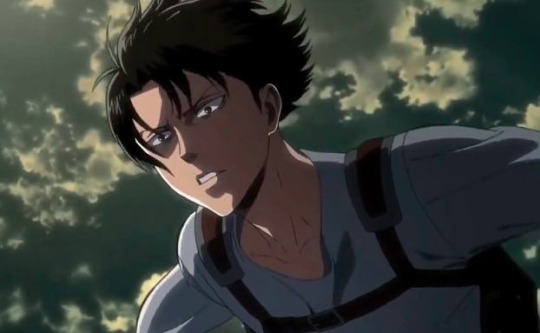
Levi's extraordinary achievements in the face of insurmountable challenges cannot be accomplished through mere brute force and speed. Strength alone is futile if not complemented by keen perception and strategic acumen. One cannot bear the weight of leadership and its countless responsibilities solely on the shoulders of physical prowess. It takes more than sheer might to lead; it takes intellect, adaptability, and a strategic mind.
Levi's intellectual prowess frequently takes a back seat to his physical strength, yet it serves as a potent weapon in his combat and decision-making arsenal. Guided by intuition, sharpened perception, and an abundance of experience, he wields his intellect like a masterful sword, carving his path through the complexities of battle and strategic choices with unparalleled finesse.
While the overarching strategic vision is typically the domain of Commanders and leaders of the delegation, Levi holds the distinguished position of being the solitary captain, or heishichou the "leader of the soldiers," for a profound reason. He consistently assumes the mantle of leadership in the heat of battle, guiding and commanding his comrades on the front lines.
Erwin's decision to bestow the serum upon Levi hinges upon the latter's exceptional "ability to make on the ground decisions". It is Levi's unparalleled skill in rendering ground-level judgments that compels this weighty responsibility to rest in his hands. In the crucible of dire circumstances, where lives hang in the balance, Levi's ability to make swift, resolute choices emerges as an indispensable asset, earning him Erwin's trust.
Levi possesses an astute ability to gauge the depths of people's character. He often finds himself serving as the voice of various people, both long-standing acquaintances and those he's encountered more recently. From the likes of Erwin, Zeke, Hange, Eren, Mikasa, Armin, to even individuals like Dimo Reeves, he becomes the conduit for their narratives.
In the case of Eren, Levi's perception goes beyond labeling him a "monster," a judgment he passes as early as the Female Titan. Levi discerns a more complex truth, recognizing Eren's susceptibility to self-doubt, moments when he stands frozen, and the powerful inner force that spurs him back into action, a revelation that illuminates the intricate facets of Eren's character.

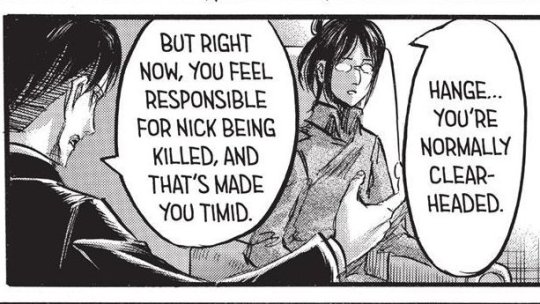


Levi's perceptiveness and intuition manifest in remarkable ways, allowing him to weave connections from seemingly insignificant details. Whether it's deducing Nick's resignation from the Survey Corps by counting the fingernails missing due to his torment, unraveling Kenny's intricate schemes, or uncovering the concealed compartment within the basement drawer, his ability to extract profound insights from seemingly minor data points sets him apart as a master of deduction and reveals the depth of his analytical prowess.
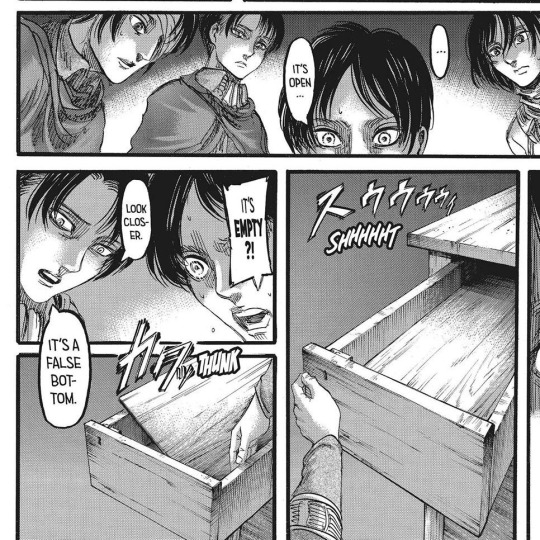

This steadfast quality becomes vividly apparent during the climactic final battle, where Levi not only deduces and formulates a course of action but also issues orders with greater frequency and authority than even Armin, who had ascended to the role of commander. In the crucible of conflict, Levi's leadership shines as a beacon of unwavering determination and tactical acumen.
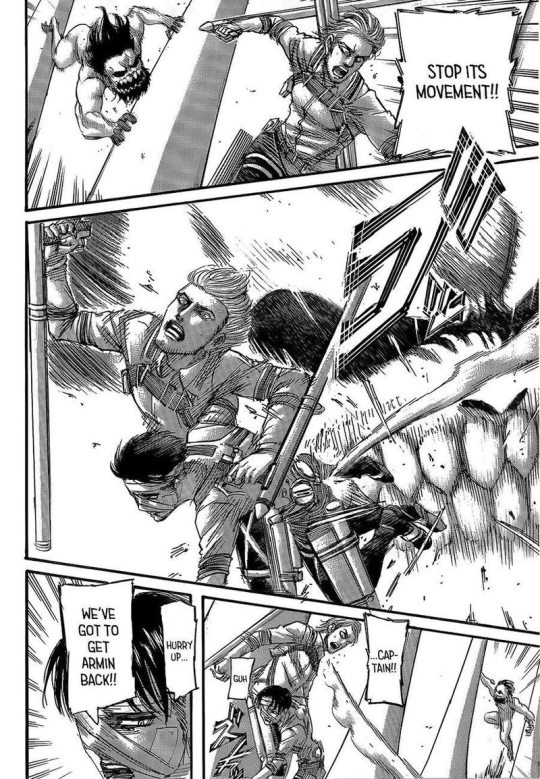

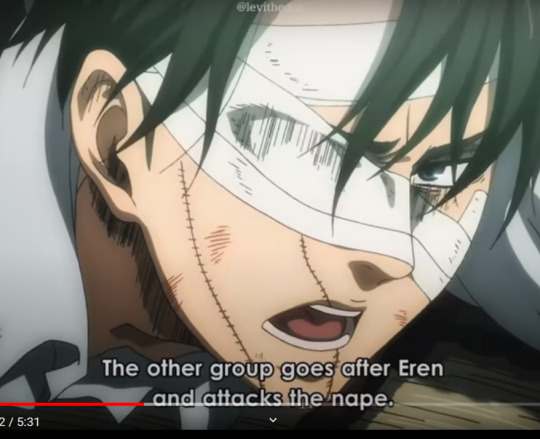



(sry for bad screenshots)
Levi's fighting strategies are nothing short of brilliance. An in-depth analysis of his combat engagements reveals a profound level of strategic thinking at play:
In the heat of battle, he showcases remarkable ingenuity by adapting his surroundings into improvised weapons. From utilizing tree branches to obscure Zeke's line of fire in the War for Paradis, to wielding his cape, a bottle, a chair, and his ODM gear as instruments of defiance when cornered by Kenny's squad, Levi's approach to combat goes beyond the conventional.
He refrains from seeking a swift and straightforward kill, instead focusing on a methodical disassembly of his adversaries. This is evident in his calculated actions, such as the methodical dismemberment of Annie in the Female Titan encounter and his gradual neutralization of Zeke's combat capabilities, piece by piece, during the Return to Shiganshina battle. Levi's approach catches his opponents off guard, as they tend to underestimate his tactics by fixating on their own vulnerabilities.
Moreover, when the tide of battle doesn't sway in his favor, Levi doesn't fall into the trap of overestimating his abilities. He tactically acknowledges his disadvantages and devises inventive solutions to address them. One such instance is when he intentionally lures Kenny to a bar during the ambush by Kenny's squad, seizing the opportunity to acquire a shotgun and pivot the odds in his favor. Levi's combat strategy stands as a testament to his resourcefulness and unwavering commitment to achieving victory.
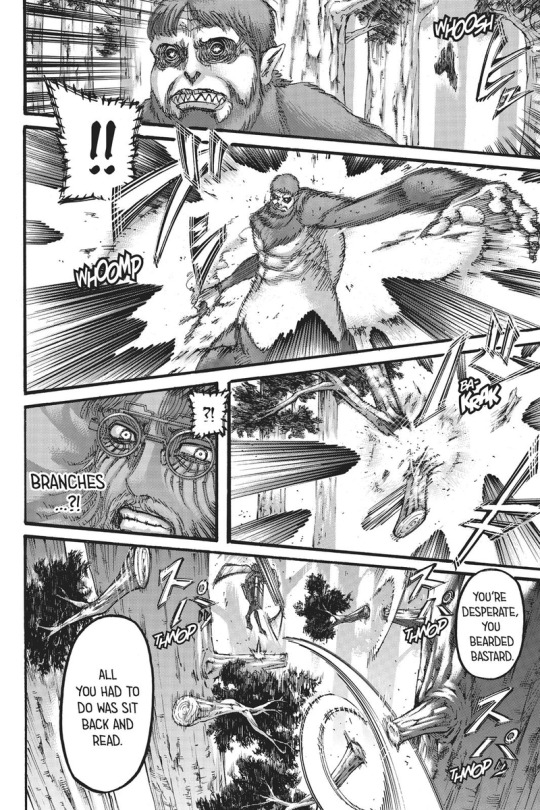
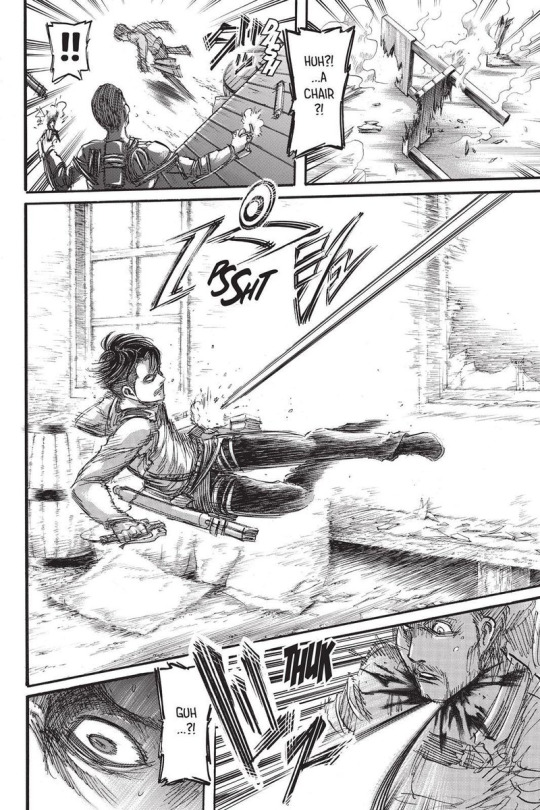


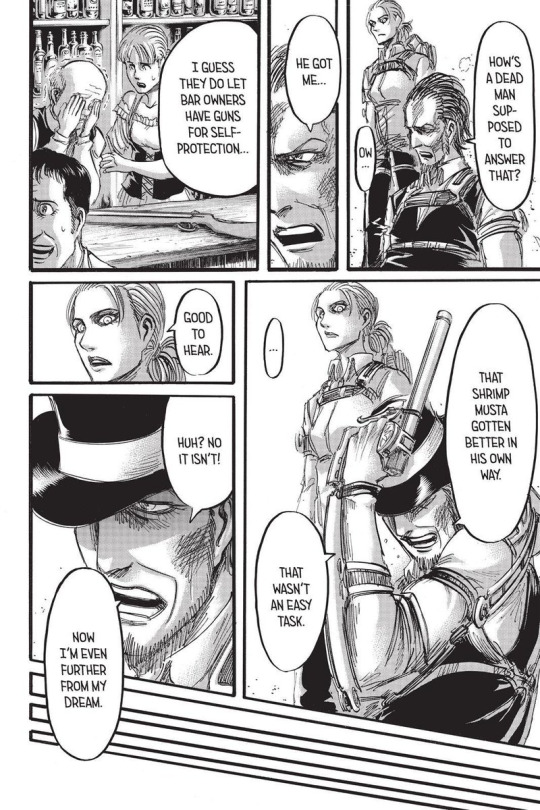
#levi ackerman#attack on titan#shingeki no kyojin#levi#aot#levi aot#captain levi#shingeki no kyoujin#lunarmis#animanga#character analysis#analysis#anime#manga#cielettosa#cielettosa meta
22 notes
·
View notes
Text
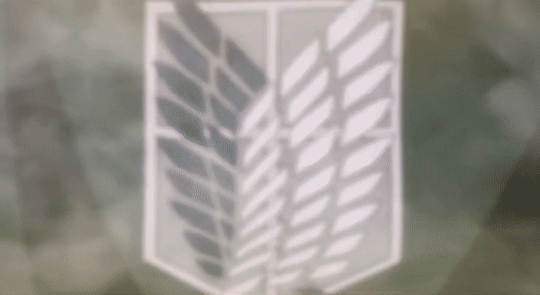
The Watcher
⚠️ Spoiler Warning: Levi focused epilogue following the events of the manga/anime.
⚠️ CW: Implies themes consistent with the source material including war and genocide.
Genre: Angst
Tags: Levi Ackerman Centric, Character Study, Meta, Levi Ackerman Needs a Hug, The Rumbling, Levi's Humanity's Strongest
Word Count: 1212
Status: Complete
Summary: Levi's bones were never allowed weariness. As the dust settles, what is left for him in all that follows the events of the anime?
OR
Levi was a tool who'd only ever learned to be sharp. His body worse for wear, he copes with the burden of living in peace as best he can.
On the edge of reason, in a shack earnestly built, there was nothing but silence. Its windows faced rushing waters overlooking sand that hardly knew the weight of careless feet and the wind sometimes moved through the shutters perhaps too easily.
Most days passed without incident or even so much as a knock at the door. In the mornings, Levi Ackerman would rouse himself from bed, a process that had become slower, much more arduous than his days in the Scout Regiment. He’d make it a point to don freshly ironed shirts and pressed pants despite seldomly leaving his home. Even surrounded by muck and grime in the Underground, he’d never been one to dress like a slouch despite how strenuous his efforts were to come by these days. He found merit in the weight of the struggle but something about the pomp and circumstance of getting dressed now presented Levi with a stunning reminder of how the freedom he’d sacrificed so much for had given way to a malaise he’d not yet given a voice to. He couldn’t.
To speak of his discontentedness seemed to spit on the legacy of his fallen comrades which would be undignified. After all, it’s not like he was discontent with peace. That’s what they’d fought for, right? First, to explore and push beyond the walls that had, unknowingly, kept them prisoner. But the more they learned of the outside world, the more they realized Titans were the least of their concerns. Titans could only eat them. Just across the water lived monsters who delighted in their agony, their suffering. Enemies who toiled away at new ways to punish and torment them. A world that feared and hated them.
They’d broken down the walls to find that they were merely livestock encroaching on the slaughter. Their success in Shinganshina opened their eyes to these bigger, unspeakable threats. Prejudices and ideals that even “Humanity’s Strongest Soldier” had no means of cutting down. Their evolving world view turned their decades’ long curiosity and perseverance into a weapon formed against them. Would they have been better off having never pressed their luck? Dying off peacefully behind the walls as resources dwindled? Underground, people died like that every day. Levi’s own mother had succumbed peacefully to her own impoverished circumstances.
Levi shook his head of the thought as his wheelchair creaked sharply over a floorboard in protest. There was nothing “peaceful” about being starved or being ill and left to die. He was no stranger to gruesome ends. From thrashing teeth to unforgiving boulders to weapons constructed and wielded by men, carnage remained a strange bedfellow to him throughout his entire life. Whether this would always have been the fate of a man lowly born, he wasn’t sure, but damning his mother for the same miserable station in life did nothing but graze a wound he’d rather not agitate. Such was the way Levi navigated his days, avoiding the minefield of compartmentalized grief that threatened to send him down a spiral. His refusal to acknowledge that which festered resentfully within him created narrowing paths in his mind that he dare not trod lest the anguish consume him.
More often than not, he needn’t speak a single word aloud, the whistle of a tea kettle being the only sound that penetrated the quiet. On days when Gabi and Falco or an errant subordinate were expected to come by, he’d make it a point to clear his throat so his voice wouldn’t come out irregularly when he greeted them. In the space of their absence, he forgot what his voice was supposed to sound like at all.
On days marked by company, he’d partake in the fellowship offered even if, sometimes, it was only at an arm’s length. This was where he understood the depth of his unease. How after spending decades under the onslaught of destruction and devastation, its nonexistence fit him suffocatingly like a woolen sweater, too early in a humid season. Itchy and tight around his neck like the noose of the gallows just before the ground gives way.
It wasn’t so much that he resented peace nor did he take issue with its silence. But the screams of his comrades had been too loud in his ears for far too long. The cries of their family rang out at a decibel that still hummed, threatening to be forgotten. Regardless of the meticulous way he could maintain his home, his clothes still felt heavy with blood. How could he forget what still felt like fresh hell on his body? He returned from Marley exalted as a hero, never a stranger to such accolades. But what peace could be found for a man who’d only developed skills in killing and surviving by the skin of his teeth? As the dust settled following the Rumbling, Levi could only suffer his guilt forlornly. Cursedly confined to the land of the living after being imbued with the will of his fallen compatriots.
The world begrudgingly welcomed those that resided on the Island of Paradis, somewhat of an uneven exchange for thwarting a global massacre. The walls no longer kept them in but they kept no one out, either. Just as Levi could still feel the blood spilled by his hands, he couldn’t help but hold a grievance against those who’d once been his enemy.
He could rationalize Titans, even if their hunger knew no bounds. He’d seen the kind of frenzy starvation inspired, not only Underground but behind the walls, too. After all, he still remembered the culling that was barely disguised as a “call to arms” simply to give those left within the walls enough rations to survive until harvest. But the new enemies they’d encountered had more than enough resources to sate hunger, more than enough technology to lead soft lives by comparison. They were guided by a lofty impulse of prejudice compounded by a stagnating need for revenge, and were unyieldingly unsatisfied by the retribution inflicted. Having seen their hate firsthand, felt the breadth of its frivolous barbarism, Levi found the notion of harmony after the fact to be dissonant.
Even so, he accepted the notion that war should not be endless. He'd consented to being left in the charge of the Eldian Warriors, having forgiven them for their misguided ideals. He’d seen how the aspirations of mere children had changed his entire world focus several times, enough to know that the path they were on was still being forged. He could sympathize with having no way out but one carved by one’s own hand but could not bring himself to absolve their forebears.
That is how “Humanity’s Strongest Soldier” decided to live out his days. Isolated on the precipice of what separated Paradis from the rest of the world, acting as the first line of defense in a war that had not yet come knocking. A vigilant eye turned toward his enemy should the hate in their heart darken their intentions once more. A relic of an era marked by calamity and doomed to suffer the weight of its tranquility, intimately aware of the cost. Whose mouth could never comfortably bend around the rallying cry of “give your heart” but who gave of his body and soul freely.
#neonfiction#this world is cruel#give your hearts#shinzou wo sasageyo#humanitys strongest soldier#iseyama's toughest soldier#fanfiction#fanfic#anime#manga#aot#snk#attack on titan#shingeki no kyoujin#shingeki no kyojin#snk angst#aot angst#meta#character study#levi ackerman#the rumbling#aot fanfiction#snk fanfiction#aot series#aot final season#snk final episode#snk final season#aot finale#rivaille ackerman#snk levi
16 notes
·
View notes
Text
(Spoiler Warning: Attack On Titan, chapter 137.)
Why do people keep assuming Levi killed Zeke just because of that promise? Zeke sacrificed himself to save humanity. Levi knew that. Him and Hange talked about the possibility that killing Zeke would stop the Rumbling. Once he saw Titans helping them and Zeke waving at him all defenseless, he immediately knew what he was trying to do. That's why he had such a pained expression and didn't enjoy it one bit.
#aot#snk#attack on titan#shingeki no kyoujin#aot 137#snk 137#aot meta#levi ackerman#zeke jaeger#snk spoilers#aot spoilers#snk 137 spoilers#aot 137 spoilers
1K notes
·
View notes
Text
I feel like I should clear this up for the fandom. Only because I follow too much about Nile Dawk that it kinda irates me sometimes when fans got his character and his relationships a little incorrect.
1) Nile and Erwin met as trainees (without Mike; idk when and how he got in as part of their circle). While Nile admitted he found Erwin's theories ridiculous, he never once denied it. In fact, if Marie was not in the picture, Nile could have joined the SC together with Erwin just to help him realise those theories.
2) Nile and Erwin met Marie at a bar. Both fell in love with her. Nile most likely pursued her first because of his own personal dream - to raise a family. Erwin most likely did not, and kept his feelings for her a secret (or not so secret, since Nile sort of had a strong hunch).
3) Nile was most probably not a romantic, so he asked Erwin to help him write love letters for Marie. Erwin probably wrote what he could have wrote to her himself, yet she remained oblivious of his feelings for her. Also, Nile might have that strong hunch from those letters.
4) Nile oftentimes put the SC as a priority, even as an MP soldier. He always took note of who survived and who died after an expidition (with heavy emphasis on Erwin and their unnamed friends), always went out of his way to provide supplies to the SC, and even approved of untrained people i.e. Levi and his friends to join the SC under Erwin's recommendation.
5) And his help to the SC never went unnoticed, at least to Erwin and their unnamed friends. This was shown by the fact that they all forgave Nile for abandoning their promise to join the SC together, even if Nile himself did not. When Nile had his first daughter, they all, with Pixis, surprised him with congratulatory gifts.
6) Nile and Erwin both were in the Top 10 as trainees, but because Erwin was less skilled in the 3DMG tool, his rank could have been lower than Nile's.
7) There's a lowkey possibility that Nile could have been in love with Erwin, as he often found Erwin's sharp glare to be mesmerising that it made him dizzy just by looking at his eyes.
8) Nile was so well-versed with Erwin's glare that he can deduce what Erwin is planning without the need to know about it verbally.
9) Nile was constantly worried about Erwin during expiditions, that he even personally requested Levi, presumably the strongest in the SC then, to take care of Erwin for him.
10) While the part when Nile pointed his rifle to Erwin demanding answers to his actions in the anime is a filler, it still showcased Nile major priority in a huge disaster involving titans is the unarmed civilians. Hence also why Nile chose to have Eren executed in order to keep the civilians safe. Even when facing Marleyans, he still prioritise a child's life- the least he could do at that moment. His need to protect his own family most likely stemmed into such sentiments.
I really don't want to gatekeep, but it's frustrating when I see fans kept repeating the "erwin and nile are enemies" and "marie chose the wrong man" rhetorics. For the last 8 years.
#snk#shingeki no kyoujin#aot#attack on titan#nile dawk#nile dok#erwin smith#half rant half meta i guess...#musings
56 notes
·
View notes
Text
You know what, screw this tired bullshit about Levi being "a weapon". People constantly reduce him down to just that, when in reality, what actually makes Levi humanity's strongest soldier isn't his skill as a fighter, it's his heart. It's his compassion and empathy. And it's those qualities that Erwin constantly referenced and depended upon to help humanity, not Levi's violence. Anyone paying any kind of attention to the story and these characters should be able to pick up on that. Levi's defining characteristic isn't his violence, it's his kindness, and his history with Kenny is meant to demonstrate how, despite the way Kenny raised him, Levi still managed to rise above it and become a good man. It's honestly so disgusting and insulting to Levi's character when people reduce him down to just being a thing, a tool to be used for some ideological cause, when Levi is the most human character in the story. I said the other day that people always call Levi "an unbothered king", but in truth, Levi is the most bothered character in AoT. He's the most bothered character because he cares more than anyone. That's his real superpower. The fact he never becomes desensitized or apathetic toward the loss and suffering around him, despite being exposed to more of it than anyone.
It's just beyond me how anyone could read Levi's backstory, both in the main manga, and in "Bad Boy", and come away with this idea that Levi is inherently violent. You're meant to understand from learning about his backstory that he wasn't actually ever inherently violent (the way Eren was) but that he was forced into violence through the circumstances of his upbringing. Levi perfectly encapsulates what Sasha's father was talking about, about how adults lead children "into the forest", meaning into violence and conflict. Kenny led Levi into that forest, by forcing him to stay in the Underground and teaching him to kill. The whole point of "Bad Boy" was to show that fighting and killing didn't come naturally to Levi. Kenny left him to die, left him on his own in a place that preyed on helpless children, and it was pure luck that Levi's powers awoke in that moment, when he was being beaten to death. It's just as likely that his powers wouldn't have awoken at all, and he would have died. But yeah, Kenny was a great parent, sure. That's totally a normal way of raising a child. Letting them get beat almost to death and hoping it leads to them being able to take care of themselves instead of their demise. Further, we see the damage Kenny's caused Levi through Levi thinking about how Kenny wouldn't let the man in the glasses live. Levi's been taught by Kenny that in order to survive, you have to kill. He's been exposed to that lesson, again and again, forced into adopting it through Kenny's refusal to actually protect him, and as a result, Levi kills the man, which I mean, the bitch deserved it. But it doesn't change the fact that this was an incredibly traumatizing event for Levi which could have been avoided entirely if Kenny had just taken Levi to the surface. I've talked about this a lot, how we see that trauma response from Levi afterward, how being forced into killing, through Kenny's neglect, and how being taught by Kenny that killing and violence is a good or effective solution to most problems, had horrific consequences for Levi's mental and emotional well-being. Levi bursts into tears at the end of "Bad Boy" because of the damage Kenny has inflicted upon him, by refusing to take him "out of the forest". By instead forcing him into the forest. He totally fucked Levi up. Levi isn't a naturally violent person at all, but he was forced into becoming violent, and it's in that fact that Levi's tragedy lies.
Levi and Eren are set as foils to one another in the story to demonstrate this fact, by the way. Eren is naturally inclined toward violence. He and Levi are quite literally diametrically opposed. They're both violent, but for completely different reasons. Their backstories are meant to contrast one another, Eren coming from an idyllic childhood with loving, attentive parents who provided everything for him, Levi coming from a hellish childhood of poverty and desperation, with a mother who died and couldn't provide properly for him, and an uncle who did nothing but ruin his life further. They're both the most violent characters in the story, but their backgrounds are meant to show the difference in the nature of that violence. Eren's comes naturally, having nothing in his childhood to spur him toward that end, while Levi's violence was forced on him by the circumstances of his environment, forcing him to become violent in order to simply survive. The contrast is intentional. It's a subversion of the expected hero's journey. People would assume, out of the two characters, that it would be Levi who turned out to be the villain, but in fact it was the opposite. Levi is the hero and Eren in the villain. Again, they act as foils for one another within the narrative.
Levi is shown at the end of the story settling into a life of peace for a reason. Once he no longer has to fight, once there's no longer any need for that, he still continues fighting to help others in whatever ways he can, but this time, instead of as a weapon, as something much more suited to his actual nature, as someone who tries to build things and bring a little joy into the lives of children who have lost everything. That's what makes Levi's ending so beautiful, and probably the most hopeful aspect of the ending. To see this man who was forced into violence all his life finally getting to be who he really is.
That's directly contrasted against the tragedy of Levi's character throughout the rest of the story. This idea that he's a good and gentle man, forced to become violent and vicious by the world around him. Forced to become something he, deep down, never was. That's, again, what makes Levi's ending so powerful.
And, unsurprisingly and ironically, it's almost always people who accuse those who discuss all of this in relation to Levi of "woobifying" his character, or making him an "uwu", that turn around and do exactly that to Erwin's character, painting him to be some golden retriever ball of sunshine who never did anything wrong in his life. The irony here comes in the fact that Erwin's actions were always way more morally dubious than anything Levi's ever done. Even in torturing Sannes, probably the most morally dubious thing Levi's ever done, Levi only did so because it was necessary for them to find out who the true heir to the throne was, or the coup was going to fail and all of his comrades were going to die as a result. He was torturing Sannes to save lives, because he genuinely believe it was what was necessary to save humanity, and the one instance of Levi engaging in an act of unnecessary violence came because Sannes started bragging about torturing people and acting as if he should be praised and thanked for his actions. Levi was disgusted listening to someone trying to justify the same act he was `presently engaged in, because Levi could objectively understand that torturing someone was a disgusting thing to do, even while believing it was necessary to save lives. Because Levi never lost sight or strayed from what he felt was right. Even as he could objectively acknowledge that the act of torture was a horrible thing, he also believed fully, in that moment, that it was the only way to keep more people from getting killed.
Erwin, on the other hand, always knew deep down that what he was doing, the lie he was telling himself and others to get them to sacrifice their lives, was wrong, that it was wrong to deceive and manipulate people into giving up their lives for one thing, when in reality it was always for something else entirely, something they didn't agree to give their lives for. This is why Erwin was so guilt ridden, in the end. It's why we see him unable to carry the weight of that guilt any longer, why we see his psyche beginning to fracture, and why Levi ultimately realized that Erwin was done as their Commander. The guilt was beginning to destroy him and would have, eventually, corrupted him and turned him into a monster. In deliberate contrast, Levi never ends up crushed by guilt, despite all this shit going wrong. And the reason for that is because Levi never went against his own conscience the way Erwin did. Further to the point, even with all that guilt, Erwin still needed Levi to make the choice for him. He wasn't morally strong enough to do it on his own, even while knowing it was the right thing to do. That's the moment the audience is meant to recognize that, all this time, it was actually Levi who was the better man. It was always Levi who was the strong one. It was always Levi who was the hero. Levi's idolization of Erwin is meant to be shown, through this moment, as ironic in itself, because Levi was looking up to a man who Levi himself was always superior to.
I want to address one more point in this post, unrelated to the previous several points, about what Isayama said about Levi viewing prostitution as a "regular job", and how the framing of that answer by some (tsuki, lets face it) as being reflective of how Kuchel's profession working as a prostitute didn't negatively impact her or Levi's life, is absurd and disingenuous. It's such a blatant misreading of not just Isayama's answer, but of the text itself, to push this bizarre agenga of painting Levi's childhood as being better than it actually was. What Isayama is actually saying is that Levi became conditioned to seeing prostitution as a regular part of life. That doesn't mean he thinks it's "right" or "good". Just a reality of his existence, the same way he came to see violence as a regular part of his existence. But we see, even as Levi won't definitively say whether killing in and of itself is right or wrong, he still makes moral judgments on it depending on the circumstances of said killing, like how he judges Zeke for killing the people of Ragako Village, because they were innocent and posed no threat to him, showing anger at Zeke for feeling no remorse over having done so`. The same would undoubtedly apply to how he views prostitution. He would see the women working as prostitutes as normal people, not deserving of judgment or ostracism just because of their line of work. His own mother was a prostitute, and he loved her endlessly. He clearly didn't hold her profession against her in any way, or judge her for it, which is just in line with Levi's character anyway, being the least judgmental character in AoT. But that doesn't mean he wouldn't have been aware of the harm working in such a profession causes. The way PTSD is so prevalent among sex workers. He, after all, watched his mother also die from contracting what can easily be assumed was an STD from one of her customers, and he also experienced a life of squalor, destitution, poverty and isolation, as well as discrimination, because that same profession wasn't enough to provide for the both of them. So just because Levi would view sex workers as normal people working a "normal job" (i.e. something he was conditioned to seeing as a normal part of life) doesn't mean he wasn't aware of or impacted by the danger inherent to that profession or didn't see the ways in which it obviously, negatively impacted his mother and himself. The same way that, just because Levi is used to violence and death, and accepts it as a regular part of life, doesn't mean he sees those things as okay or acceptable. The same applies to this. He'd also, undoubtedly, see the people who profit off of and force those same women into that line of work as reprehensible, as well as people who mistreat them or shun then for being sex workers as disgusting, as exemplified by his reaction to those men in "Bad Boy" when they started calling his mother a "whore".
One more point also about the excuse making I see for Kenny, and the way it exposes the hypocrisy of the people engaging in it. Levi is actually a positive example of masculinity, what masculinity should aspire to be, and yet he gets shit on all the time for his supposedly out of control violence, while Kenny gets his dick sucked because he didn't let Levi starve to death, but failed in pretty much every other category of responsibility when it came to raising a child. It just shows how ass backwards most people's views on masculinity are. Levi's masculinity is defined by the best qualities of masculinity, that being a driving, protective instinct and a willingness to take on the responsibility of protecting and caring for others, even when it costs him dearly and causes him to suffer. He's more of a real man than Kenny could ever be, and that's the point. Levi steps up and takes responsibility, dedicates himself completely to the people in his life, and does everything for them, while Kenny shirks responsibility because he's too much of a self-centered egotist and too selfish to do the right thing, always choosing instead to do whatever it takes to get what he, personally, wants. Levi and Kenny are purposefully contrasted for this reason. We're meant to see the way Kenny raised Levi, leading him into a life of violence and then abandoning him, as a bad thing. It being contrasted with Levi doing the polar opposite, dedicating himself fully to the people in his life, people he didn’t lead into violence, but who chose that life for themselves, and so Levi stays to act as their sword and shield, is also intentional, to demonstrate how, where Kenny totally failed, Levi completely succeeded. How people don't get this is beyond me.
One last point. There are many examples given of good father figures in AoT, so Kenny's portrayal isn't meant to be seen as a product of social conditioning. Kenny isn't the way he is because it's what he grew up around or because he was taught that's how father's are supposed to be. His grandfather even talks about doting on him, so we know Kenny got plenty of love growing up. Anyone who tries to use that excuse to defend Kenny is full of shit.
#Levi Ackerman#Kenny Ackerman#Kuchel Ackerman#rant post#analysis#meta#commentary#attack on titan#shingeki no kyoujin
74 notes
·
View notes
Text
Perfect and brilliant analysis! Wow, one of the best I've read in such a long time, about both Hange and Levi. You're just so spot on with everything you said. It's always been really clear to me that Levi and Hange are basically best friends, and for all the reasons you laid out, demonstrated by all the examples you gave.
Your point about how Levi's and Hange's level of communication, and how Hange's awareness and understanding of Levi's perspective demonstrates their closeness was so on point and brilliantly laid out. I think it's pretty apparent, for example, that Levi is much closer, on an emotional level, to Hange than he ever was to Erwin, and I think that generally is due to Erwin's decision to remain withdrawn and emotionally unavailable to others, not really because Levi wasn't willing to get close to him. But there's absolutely a dynamic duo aspect to Levi's and Hange's friendship. There's a reason Isayama shows them working together in close unison, far more than he does Levi and Erwin. Erwin may be Levi's guiding light, but Hange is Levi's close friend, someone who Levi is able to just be a person around. As you said, Hange is maybe the only character in the series who actually treats Levi like a human being, instead of as a weapon, and that speaks volumes about the level of comfort Levi can find with them. Their ability to interpret and translate Levi's words, too, is, as you lay out, also perfectly demonstrative of their closeness. Very few people in the series understand Levi. They think he's rude and callous, because they don't understand and don't see beneath the rough exterior which, as you also point out, is a product of his terrible childhood and the impoverished and desperate circumstances of the first 20+ years of his life. But Hange does see past that, and understands it isn't reflective of the caring and compassionate man Levi actually is. I think that's also why Hange isn't at all bothered by Levi's seemingly rude and crass language when speaking to others. They know Levi doesn't really mean anything malicious by it, but rather that it's the only way Levi knows how to communicate, again because of his rough upbringing. I think that's where Hange's good humor with Levi comes from. They get he isn't trying to actually hurt anyone's feelings. Again, that proves how close they are, because most people don't get close enough to Levi to realize that about him.
And I particularly liked your point about how it's thematically inconsistent with Levi's character to claim he cares more about certain characters above others, and so it's absurd and canonically incorrect to make claims that Levi cares more about Erwin than Hange, or vice versa. What you say about Levi caring equally for everyone is exactly it. He doesn't see more inherent value in any, individual life over another. He's as concerned with the lives of strangers and acquaintances as he is friends and comrades, and we see that demonstrated throughout the story, like for example when he saves the lives of the merchants in Trost, even after they were berating and attacking him pretty viciously, or when he works himself to exhaustion trying to save the lives of the new recruits in Shinganshina. I think people tend to have this misconception that Levi values some lives over others because they're unable to separate out that Levi can objectively determine that the lives of certain people are more valuable in advancing the Survey Corps cause, like Erwin, or like Eren. It's important to note, and this is something people love to ignore, but Levi was willing to let Erwin die in order to save Eren, not because he cares more about Eren than Erwin, or because he sees Eren's life as inherently more valuable than Erwin's, but because he understood objectively that Eren's continued survival was more vital to humanity's victory over the titans than Erwin's was.
Similarly, I think, people misunderstand what was motivating Levi's decision to let Erwin die in Shinganshina, and try to force it through this lens of romantic interpretation, when in reality, it wasn't Levi's personal connection to Erwin that had him choosing to end his suffering, but rather his universal empathy and compassion for all people, and a moral conviction to protect others from losing their own humanity (which Levi talks about in his monologue to the 104th, being willing to take on that role if it means saving others from having to do the same.). Ironically, of course, we see Levi's own, great humanity in his refusal to let others fall to such a fate, in his refusal to let a fellow human being suffer. What people don't get is, he would have made the same decision for ANYONE, Hange included, if it had been them in Erwin's position. If Hange had been the one who was at risk of losing their humanity and who's continued role as commander threatened to destroy them, emotionally and mentally, Levi would also have let them die. Which is what we see in the final arc, when Hange makes their decision to sacrifice their life for the alliance. Levi doesn't try to stop Hange, or convince them otherwise. He understands it's what Hange wants, and what's best for Hange on an emotional and spiritual level. Even as it clearly breaks Levi's heart to do it, just like it did with Erwin. I don't think either lose had a more devastating impact on Levi than the other. Both hurt him equally, which goes back to your point about how Levi isn't someone who has "favorites". He cares about all people equally, holds the same level of compassion and empathy in his heart for all people.
Anyway, all this to say, fantastic analysis. This is the type of analysis this fandom could do with more of.
About Levi and Hange's communication skills
A concept I've always wanted to talk about that I haven't really seen many people discuss in the AoT fandom is the communication going on between Levi and Hange whose bond is greatly defined by this concept. They share in my opinion some of the best if not the best communication skills I've ever seen not only in AoT but also in any other form of media I've ever consumed. From the manga evidence I've gathered displaying these characteristics, we can deduce some interesting information about their relationship that I think is worth discussing. I think Levi and Hange are actually closer than what certain people might believe due to these incredible communication skills, and I'll show how communication and closeness affect one another.
A quick heads up, when I say Levi and Hange are close, it's not meant in a romantic way and it will be never be seen as such since neither Levi nor Hange have romantic canon ships in the story. Their closeness to each other will rather be regarded as platonic, almost feeling like a partnership between two friends, and after rereading the manga, I do think Isayama tried to write their bond as a very close partnership rather than some other kind of relationship. Additionally, the fact Levi and Hange are this close doesn't mean that Hange is more important to Levi than other characters with whom he shares a relationship just because he might be closer with them than with others. There's no hierarchy in Levi's heart in regard to his emotional connections with people, meaning that his friendship with Hange means as much to him as his friendships with other characters. Hange brings something in Levi's life other characters don't, but the other way around is also true. I'll only be focusing on the characteristics Hange brings to Levi in this post, but keep in mind that Levi's bonds with others all enrich him in different ways and they're all important to him, and stating otherwise in my opinion is to not understand the fundamentals of Levi's character.
But now back to Levi and Hange specifically, I've seen some people among fandom spaces claim instead that Levi hates Hange or that Levi doesn't care about Hange as much as he cares about other characters, and to that I'd like to counter-argument, explaining why these negative misconceptions can't be further from the truth and how they do a huge disservice to Levi's character in particular.
The first evidence to showcase Levi and Hange's communication skills in a way that's more significant than what we've seen so far happens in chapter 53, Smoke Signal, and is unfortunately a manga-only scene. For a bit of context, this chapter shows the experiments Eren is making in order to improve his hardening skills while the Survey Corps are into hiding, hunted by the Military Police. Then later, after the experimenting session is over, Eren asks about how the experiments went, and we see this interaction occur between Levi and Hange.


There are many details revealed in this scene about Levi's character and how Hange adapts to his personality. So, Levi has a very roundabout way with words when he explains something and no one really seems to understand him. However, Hange is the only person seen to kindly 'translate' what Levi just said so the others present with them in the room can understand better. And in the second panel, Levi acknowledges that Hange understood his words well as he thanks them for their clearer explanation.
This scene shows that Hange needs to have a high level of closeness with Levi in order to be the only person in the room to understand him. Communication is a hard skill to develop with others, therefore this interaction between them can't be explained simply by Hange's intelligence or by the fact that they're good at ‘getting people’. This then means Levi and Hange must communicate extremely well with one another if Hange can even pass as “Levi’s translator” for others. Hange needs to understand Levi's perspective on the world in order to explain his speech to others in a way they can understand as well, which is extremely hard to achieve. The most plausible explanation for this interaction is that Hange and Levi developed a level of communication unlike any other through the years they've known each other, allowing Hange to correctly interpret his words for others who aren't as familiar with his perspective as Hange is. It's possible that in order to reach that, Hange might've been helped by their own innate ability to understand people in general, just like Levi, but the fact remains that communication between them had to be honed and perfected for this scene to happen.
The second evidence that truly solidifies their communication skills happens later on in the manga and anime, and in the manga it happens in chapter 106, Brave Volunteers. For a bit of context, it's a scene that happens during the 4 years time-skip when the Survey Corps have captured a Marleyan ship and have met with Yelena and Onyankopon, the anti-Marleyan volunteers who want to work with Paradis to oppose Marley. Hange and Levi are in a meeting with them to discuss their motivations for going against Marley when this interaction occurs between Levi and Hange.

They are seen understanding each other simply through thoughts (as shown by thought bubbles), which is proof of how strong their communication skills are. They’re literally doing telepathy in a world where such superpower doesn’t exist. They understand each other so well that one glance from the other is all they need in order to communicate together. This level of communication they share is unmatched throughout the series, because in order to do telepathy with someone else, something almost unattainable in real life, the people involved need to have a perfect understanding of the other's mind, the other's inner thoughts, which is something that can be achieved only through getting to know enough that person, and even then it's no easy feat. While it is true that the conversation they've shared wasn't very complicated, it's still surreal that they managed to pull it off so effortlessly. This can only be explained by the numerous years they've spent constantly being at each other's side, and this scene is the literal manifestation of such closeness taking shape in their lives to the point they can understand one another simply through eye contact.
I've seen a few people question the legitimacy of this scene and claim that thought bubbles here mean that they whispered this conversation to each other, however the anime version of this scene is actually what backs up the telepathy theory and solidifies it even further. In season 4, character thoughts are shown through showing the eyes of the character without their lips moving while the voice actor speaks their thoughts in the background. These are two examples of Mikasa and Hange shown when they speak in their minds taken from Season 4 Part 1 Episode 10: A Sound Argument during their meeting with the Azumabito clan.


Back to the telepathy scene, this is how the anime decided to show it from Episode 9: Brave Volunteers.


Only their eyes are shown while their voice actors are speaking with a normal voice in the background. With the anime version, it's very clear to say they spoke through thoughts and not in whispers, which canonically proves they spoke through telepathy in this scene.
With these scenes, we can say that Levi and Hange share incredible communication skills, the best in the whole series, and we've established by now that Hange understands Levi extremely well, but communication has to go both ways: does Levi understand Hange too? The telepathy scene shows that Levi understands Hange as he communicates with them only through eye contact, but another evidence from the manga supports better the idea that Levi also gets Hange when he senses that something is wrong with Hange's demeanour in chapter 52, Krista Lenz. He brings Hange to speak up about what's been bothering them, which is Pastor Nick's death, and then slowly brings back the determination in Hange to fight back knowing full well how much Pastor Nick's death has affected them, which is also one of the reasons why he accepts to torture Pastor Nick's executioner for Hange's sake as seen in his line from chapter 55, Pain: "… That’s probably everything they did to Nick.” This evidence alone shows how much Levi understands Hange too as Levi is a very perceptive character, therefore we can say Levi understands Hange as well as Hange understands him.
These are the manga panels about Levi and Hange's conversation in order from chapter 52.






This is the manga panel of the torture scene from chapter 55.

Now that we've established that Levi and Hange share incredible communication skills and they both understand each other, what does it actually mean for their relationship? To have good communication with someone means that this person must be close to you because you understand the world view of this person. Closeness and communication are interconnected, as communication enhances emotional closeness, which is "the bond that forms through deep feelings of connection, understanding, and vulnerability between partners" (Gardenswartz, 2024) (although this article mainly alludes to romantic bonds, emotional closeness is not inherent to romantic relationships and may very well happen in platonic relationships too). Besides, high levels of closeness do improve one's perception of the other's emotions as this study suggests: "Close friends detected the onset of their partners’ angry and sad expressions earlier than acquaintances. Additionally, close friends were more accurate than acquaintances in identifying angry and sad expressions at the onset, particularly in non-vignette conditions when these expressions were void of context" (Parmley & Zhang, 2014). These findings are consistent with my own arguments about how Hange and Levi correctly perceiving the other's viewpoint and emotions makes them closer to one another.
I also do want to touch up on something I don't see many people discuss, but I genuinely think the events that happened in Shiganshina, namely Erwin's and the rest of the Survey Corps recruits and veterans' deaths, made Levi and Hange grow even closer than what they were before due to shared trauma. For some reason, bonding over trauma isn't regarded highly among fandoms, however it doesn't make the bond less valid because it happened under a traumatic event. Some people like to disregard the fact Levi and Hange remained the last two veterans alive and lost their common friend as if such experiences only affected them individually and not together, but these experiences are important to their bond and it wouldn't be far-fetched to say they both only grew closer from them despite the griefs they might have felt from such harrowing losses. This concept of shared trauma bringing people closer together might look obvious, but science supports that concept as well, as seen by the findings of this particular study: "Sharing painful experiences with other people, compared with a no-pain control treatment, promoted trusting interpersonal relationships by increasing perceived bonding among strangers" (Bastian, Jetten, & Ferris, 2014). An example from the manga somewhat supporting this theory could be Levi and Hange's telepathic discussion which happens years after the tragic events of Shiganshina, showcasing how close they've become to succeed at communicating only with their eyes.
Therefore, understanding Levi in the way Hange does shows they're humanizing Levi and see him for the person he is rather than the tool or weapon many other characters see him for, himself included. Hange took the time to understand Levi's perspective, his values and motivations which shows they care a lot about him. I would even argue that the main theme of Levi and Hange's relationship is this constant care they're mutually giving to each other throughout the series, and why Hange had to be the one to find a gravely injured Levi after his encounter with Zeke in chapter 115, Support, and then nurse him back to a relatively stable state. I believe that scene is the culmination of their theme, and although we could speculate on what other characters would've done for Levi if they were in Hange's position or whether Hange would've saved another soldier the way they saved Levi (they would've since Hange is a caring person), the fact remains that Hange had to be the person to find Levi in that critical state to make sense narratively speaking, as mutual care is all about the theme of their relationship.
To show how Hange's care towards Levi is showcased throughout the manga, I will include an example occurring before chapter 115 to further prove how this theme has been explored throughout the manga. It didn't magically start after Hange found an injured Levi. There are many instances when Hange is seen caring for Levi, but I'll be using an example directly showing Hange's worry about Levi and his squad's wellbeing taken from chapter 57, Kenny the Ripper. This happens in the Uprising arc when the Military Police is out hunting the Survey Corps, and we see a visibly upset Hange asking Erwin about Levi's squad's whereabouts.

The reason I'm showing more Hange's care towards Levi than Levi's care towards Hange is because Levi cares about everyone, and Hange is obviously included in that everyone. Levi is shown caring more about people than people are really shown caring back for Levi in the same way that he cares about them, so this is why this theme of mutual care between each other is particularly more important to show on Hange's side than on Levi's side. However, to prove how the manga is portraying his care for Hange, I'll use again one example among many taken from chapter 79, Perfect Game, during the Shiganshina arc where we see Levi muse about Hange and the others' whereabouts after Bertolt's explosion. He's even considering meeting with Hange's squad to check up on them when Zeke starts throwing his rocks at the Survey Corps. Similarly to Hange's worry about his wellbeing, we're seeing here Levi's own worry about Hange and their squad's wellbeing clearly displayed in the manga.

This brings me to the misconception still circulating in certain parts of the AoT fandom that Levi hates Hange, and how we can see it has been thoroughly debunked by the closeness they share together. Even so, I'll still analyze it in detail for the remaining sceptical people who stumbled on this post.
First, let's start with the fundamental question: does Levi hate Hange? The arguments I've seen for this claim are that Levi is rude towards Hange as he calls them by harsh nicknames, which can be debated as to how "mean" they actually are (his most used nickname for Hange is "four-eyes", so I'll let you be the judge of how "insulting" this nickname is) and that such a "clean freak" like him (in Hange's words from chapter 9.5, Side Story: Captain Levi) could never tolerate someone like Hange who isn't too keen on bath time. These arguments in my opinion are rather shallow as to why Levi could even hate someone because they "don't bathe as often as he would like", and it's a simplistic view of Levi's character. Levi would never hate someone for not sharing a similar lifestyle as him, especially him, the most non-judgemental character of the series. The only person we can clearly state he hates is Zeke, and that's due to how opposite Zeke is in theming to Levi. Zeke is Levi's narrative foil in where Levi values life and fights as hard as he can to not see people die anymore, Zeke has no remorse using people for his schemes and killing them in the process, seeing their deaths as justified for a greater cause. I would even argue that had Zeke shown some kind of remorse or grief to what he has done, anything that would have redeemed Zeke a bit in Levi's eyes, Levi wouldn't hate him as much as he currently does. This is why Levi is more accepting of the warriors like Reiner or Annie because they do feel grief and remorse for what they've done to the people of Paradis unlike Zeke. But we cannot compare Zeke to Hange, except maybe their intellect and the fact they both wear glasses, but the similarities end there. Hange is much closer to Levi in ideals than they are to Zeke. Simply that Hange is the one to have brought the Alliance together to stop Eren's genocide pretty much shows why Levi even accepted to be part of the Alliance as well, which puts Hange at a complete opposite pole from Zeke.
So then, it would make no sense for Levi to now become judgemental with Hange on the basis of such a trivial disagreement on their bathing routines. Besides, this bathing argument is nowhere to be found in the manga. It comes from side material that is sometimes highly exaggerated for jokes (like in Junior High for example). Therefore, I don't think these types of arguments should be taken seriously, and especially not to prove such an important claim that can unfortunately affect the way people in this fandom see Levi and Hange's bond.
Going back to the rather "rude" name-calling of Levi, this doesn't show Levi hates Hange or anyone for that matter, as Hange isn't the only one on the other side of his rude remarks. The majority of the AoT cast has been subjected to some of his name-callings, but that doesn't mean by any means that he is hateful towards these characters. It's his blunt way to communicate with others, which probably comes from his harsh upbringing, and this is something Hange understands about Levi as they have never been offended by his rude remarks and have instead played along with him, creating a certain kind of bantering between the two as we can see in this example from chapter 26, The Easy Path:

We see how Hange has no problems humouring Levi with their answer even if Levi's comment could be seen as unprofessional and borderline disrespectful by our rather polite society. So then again, on what grounds could Levi even hate Hange, the person who understands him the most in the story? The claim then falls flat, as it would be illogical to say Levi hates the person who understands his world view and can communicate with him the best.
Now, on to another misconception closely linked to the first one, namely that Levi cares more about other characters than Hange, or that his bond with Hange is not as special or as important as his bonds with other characters in the story, or even that Hange isn't crucial to Levi's story as they could've been erased from his story and it wouldn't have changed anything in Levi's story (and if some people believe these comments are too exaggerated, these are real comments I've received under a discussion thread, so no, these ideas unfortunately lurk in this fandom). So, we've already established how close Levi and Hange are due to their communication skills and shared trauma with different examples taken from the manga, and how the theme of their bond is mutual care. Why would their closeness and theme be regarded by the fandom as less important than any other themes from AoT, and more importantly, why would Levi in particular care less about his bond with Hange when Hange is the closest to him?
I've already expressed how Levi views all of his relationships equally in terms of emotional impact, and even more so, his care for others is such that he'll care about strangers as much as he cares about his own friends or family. I do think this is a difficult concept to grasp for some people in this fandom as we as human beings all prioritize our relationships with our family and friends rather than the ones we might have with acquaintances or strangers, and this is a totally normal behaviour to have. However, such behaviour doesn't apply to Levi as he is quite literally considered the ideal person, the archetype we should strive to reach as readers or anime viewers learning about his story. And so, to claim that Levi might have "favourites" in his life is completely inconsistent with Levi's own personal theme as a character, which is the value of life. What messages would a character representing such an important concept, even more so nowadays in our troubled times when clearly, the rights of certain people are seen as more valuable than the rights of others, send if he cared more about certain characters than others? It would make no sense thematically speaking, and even worse, it would mean that indeed, some characters' lives are actually more valuable than others, which would only shatter his theme. When I say that no character's life is more valuable to Levi, it's never in relation to the ranking of said character, because by that idea, then of course Erwin as commander is more valuable than anyone from the Survey Corps when Erwin was commander, but more in relation to the intrinsic aspect of life and how that character's life affects Levi, and on that level, the emotional importance level, everyone is equally important to Levi, no exceptions. This is why stating otherwise about Levi and his bond with Hange does a huge disservice to Levi's own character as it destroys the fundamentals of his theme in canon.
If someone isn't interested in such theme and prefers a fanon version of Levi's character, that's totally valid too and I'm not here discussing how people should see Levi fanonically as we all have different headcanons and ideas about him that are all worth exploring in fanon territory, but I do think it's important to make the difference between what themes Levi actually represents in AoT and ideas about him that are fanon, which is something some parts of this fandom struggle to make sometimes. It's okay if some people aren't interested by Levi's incredible empathy and selflessness and would rather see him care the most about their favourite character, but these people should keep in mind this isn't how Levi operates in canon, and therefore claims like Levi doesn't care as much about other characters that aren't their favourites, like Hange for instance that unfortunately receives a lot of these bad takes, should not really circulate among the fandom in the first place. These misconceptions lurk in the fandom because some people genuinely believe Levi canonically has favourites, and that's what I'm trying to debunk with this post that has now become an analysis about Levi's character too lolol. But basically, by saying he doesn't care as much about Hange as other characters paints an image of Levi that's inconsistent with the actions he's taking in canon, and it confuses the fandom as to whether these claims are actually correct or false.
Just to give an example of this doubt that's cast in the fandom about Levi, the main reasons I've seen for people to dislike Levi's character are rooted in this false narrative that Levi is obsessed with the promise to kill Zeke, and by some sort of extension to be obsessed with Erwin (as if the promise was just about Erwin, but I won't start on this topic for this post), which is why they don't like Levi. But what these people actually don't like is this fanon interpretation of Levi, which many other Levi fans and myself don't like either, and that's where the doubt is cast since many Levi haters really believe this is how Levi acts in canon, that he really just cares about Erwin or cares more about him than anyone else (and yes, these two misconceptions are part of the same coin, they're not different) because they've seen this take circulate in the fandom presented as a canon fact, so of course it can be difficult to spot the mistake. Therefore, it disrupts Levi's canon self by stating such misconceptions, going as far as making some people believe these misconceptions to be true. They're not seen how they should actually be seen, as some fanon interpretations that a portion of the AoT fandom has about Levi that you may like or not, this is a personal preference, but regardless of whether these fanon interpretations are liked or not, they're canonically incorrect.
To sum everything up, Levi and Hange are both incredible characters individually and together, and what makes them really strong is this closeness they share which results into mutual care and why such close scenes between each other like in chapter 115 or in chapter 126, Pride, where we see Hange physically take care of a wounded Levi in the forest, even exist in both the manga and in the anime. I also think it's interesting to see how the two "abnormals" of the story seem to be the ones to understand each other the most, which is definitely a very fitting theme for them. While I know it's impossible to stop established popular misconceptions from spreading in this fandom, I hope at least that this post shed a bit of light on Levi and Hange's bond and maybe more people will be discouraged to state Levi hates Hange or that Levi cares more about certain characters than others after stumbling on this post.
61 notes
·
View notes
Text
One Timeline, One Fate: How Eren’s Will Shaped the 80% Rumbling in Attack on Titan
Okay, so I’ve seen tons of confusion surrounding the nature of “time travel” in Attack on Titan: Why couldn’t Eren just change the future once he saw it? Are there multiple timelines at play? And if so, did Eren ever really have a choice, or was he locked into carrying out the Rumbling? I decided to make a comprehensive post to help clear things up.
“Time travel” in Attack on Titan is actually more about memory transmission than literal hopping between timelines. Basically, I’ll be explaining the Attack Titan’s ability to see future inheritors’ memories, the Founding Titan’s role in uniting all Subjects of Ymir through the Paths, and how these powers combine to form what looks like a loop of inevitability. By the end, you’ll see why Eren couldn’t—or rather, wouldn’t—alter the course he’d foreseen, and why there’s really only one timeline holding it all together. In essence, Eren chose the future he saw, even if he couldn't alter it.
How does “time travel” work in Attack on Titan?
Attack on Titan does not portray multiple realities or divergent timelines. Rather, the story unfolds along a single timeline, wherein past, present, and future events can influence one another through Titan memories.
In Attack on Titan, “time travel” is really a byproduct of two intertwined abilities:
The Founding Titan’s power (Ymir Fritz’s power):
Connects all Subjects of Ymir through the Paths.
Can alter memories, bodies, and even pass mental images across time if the Founder is involved.
The Attack Titan’s power:
Possesses the ability to view the memories of its future inheritors (not just past ones).
This means the Attack Titan can see glimpses of events that haven’t happened yet—at least to the Titan’s current holder.
When Eren acquires both the Attack Titan and gains partial (and later full) access to the Founding Titan’s abilities (through contact with royal blood, notably via Zeke, and earlier interactions with Historia and Dina), these powers merge, enabling memories to move both forward and backward along a single, unbroken timeline.
How Memories “Move” Through Time
Because of these powers:
Eren can send memories from his future self to past inheritors of the Attack Titan.
These transmissions are selective; Eren chooses which memories to send and to whom.
The Founding Titan’s power effectively creates a network (the Paths) that spans all time. It’s not traditional time-travel ; it’s more akin to a single timeline threaded through everyone connected by Ymir’s bloodline.
It is important to note: The future that is transmitted back is the future that will occur; there are no alternate versions of reality. Once Eren perceives a future or sends a memory of it, the timeline has effectively “locked in” that eventuality.
Key Evidence from the Manga:
The Attack Titan’s Power (Chapter 89)
Eren Kruger demonstrates knowledge of Mikasa and Armin long before they are born, a clear example of glimpsing future inheritors’ memories.
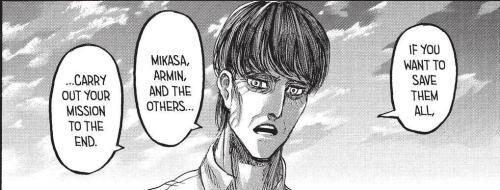
Founding Titan & the Paths (Chapters 120–122)
These chapters illustrate how the Founding Titan’s influence spans all Subjects of Ymir within the Coordinate, enabling far-reaching manipulations of time, memory, and physical forms.
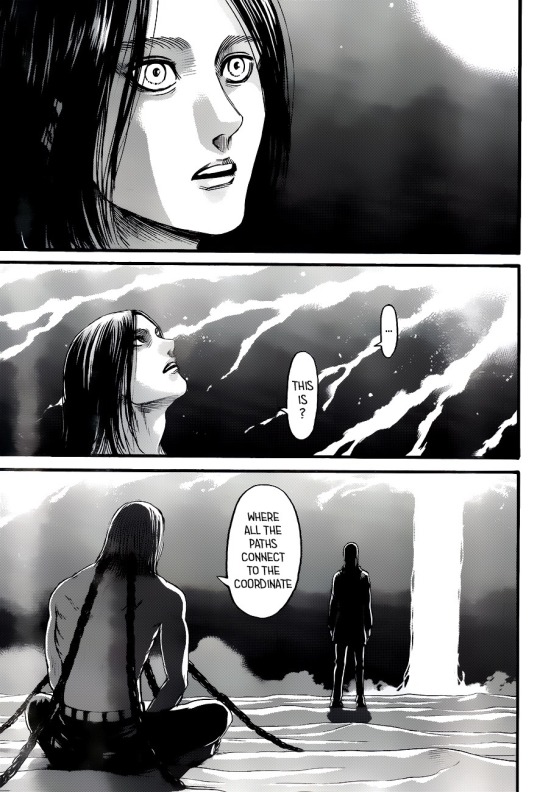
Influencing the Past (Chapter 121)
Eren effectively spurs Grisha Yeager to carry out the attack on the Reiss family. This provides a direct example of Eren influencing the past. Grisha also explicitly reacts to something Eren is showing him—memories from Eren's future, beamed back through the Paths.

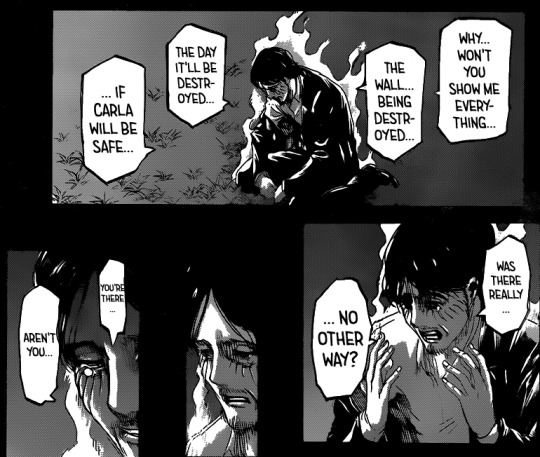
Why Eren Couldn’t (or Wouldn’t) Change the Future
A central question arises: if Eren perceives destructive events on the horizon, why not prevent them? The best way to understand this is recognizing that Eren’s will, his personal desires, and the single, closed loop timeline all lock him into a self-fulfilling prophecy. The Attack Titan does not expose random potential scenarios; it reveals a future shaped by Eren’s own resolve and desires. Once Eren observes (and transmits) a specific future, that future becomes embedded in the timeline. Attempting to deviate would negate the very memories he sent back. Moreover, Eren doesn’t want to negate the memories he sent back. Eren transmits those memories precisely because he wants his past self to strive toward that future. The image of the Rumbling’s destruction (think of the “this is freedom” panel) is what Eren wants to see.
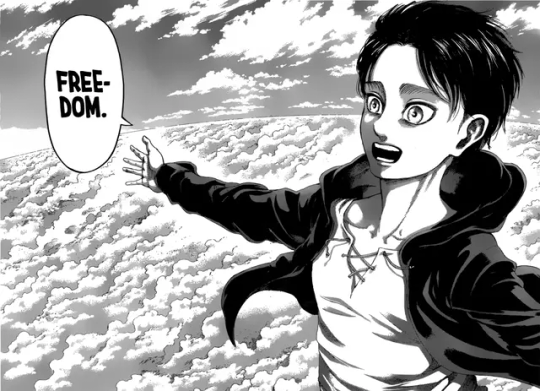
Crucially, he shows this willingness and longing by diverting the path of Dina’s titan away from Bertolt—a decision that ensures certain events unfold exactly as needed (including the death of his own mother) to see a future where he carries out the Rumbling.
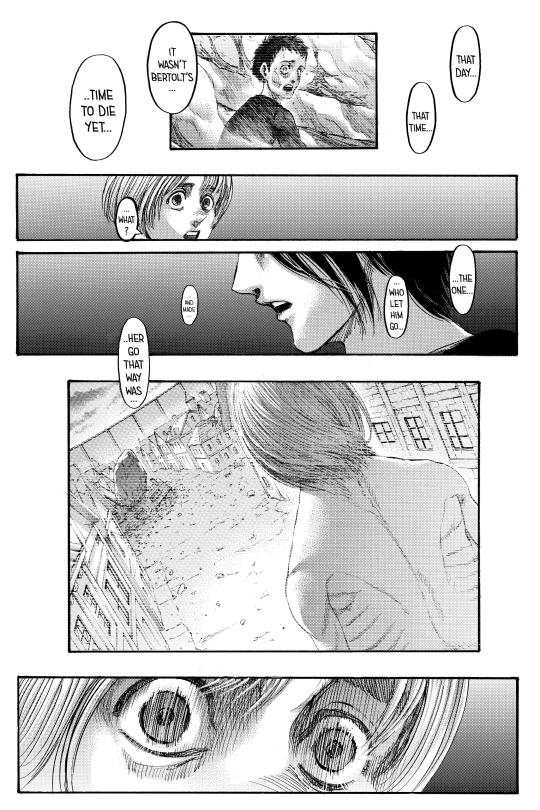
When Did Eren Know He’d Be Stopped at 80% Destruction?
Eren’s early glimpses of the future, derived solely from the Attack Titan, were incomplete. As a result, he initially believed the Rumbling would annihilate the entire world. Not until physical contact with Ymir Fritz in the Paths (Chapters 120–122) did he acquire comprehensive knowledge of the ultimate outcome—namely, that the destruction would halt at roughly 80%, not 100%. Before this full disclosure, his partial insights led him to anticipate total obliteration.
What’s the evidence for this?:
Up until Chapter 120, Eren never had full control of the Founding Titan. It was only when he and Zeke converged in the Paths that Eren finally reached Ymir directly. Until that point, he had only seen glimpses of the future via the Attack Titan’s ability—the most notable example being when he made contact with Historia in Chapter 90.
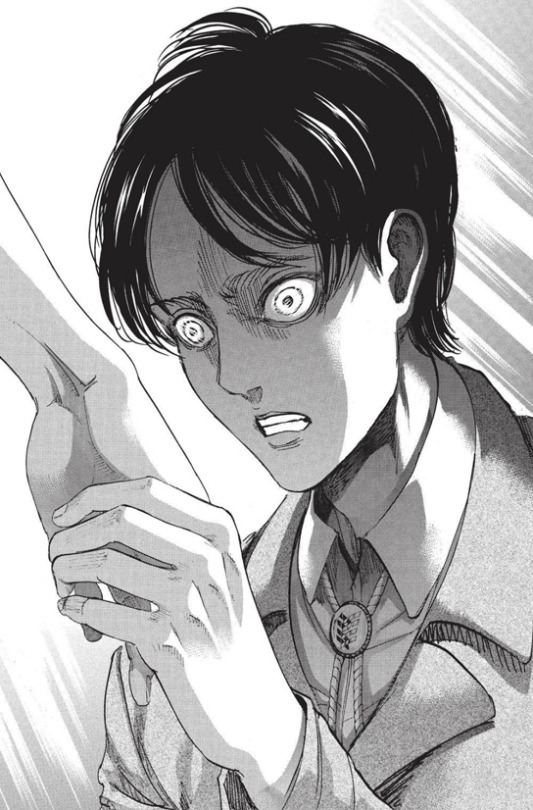
The glimpses of the future Eren sent to himself in the past only showed him the future he wanted to see. As a result, Eren fixated on the outcome he’d been driving toward (total destruction) without realizing there was a point in which he’d be forced to stop. The glimpses he saw led him to think that total annihilation was the endgame; he never saw (or understood) the moment in which the Alliance would intervene and halt the Rumbling. Eren’s mindset pre-contact with Ymir is also important to understand. In the flashbacks with Floch shown in Chapters 130-131, Eren shows no intention of leaving survivors outside the island.
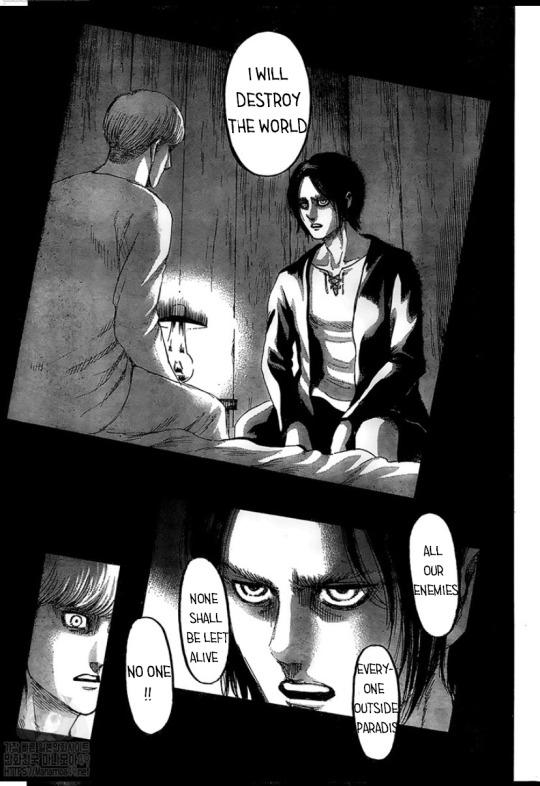
Throughout Chapters 130-131, Eren is also shown deliberating the atrocity he’s about to commit. He fully believes it will erase civilization beyond Paradis.
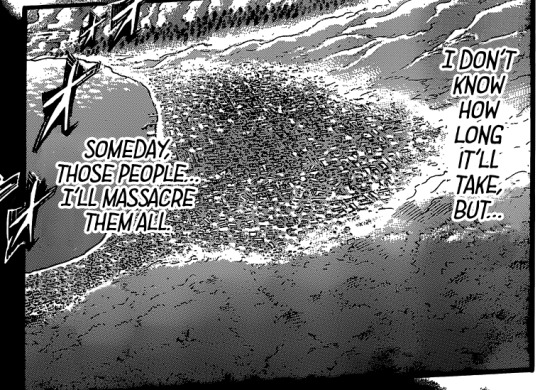
Why didn’t Eren pivot when he learned that 100% annihilation wasn’t in the cards?:
Bringing all of the points together—there’s only one chain of events. The moment Eren sees how it concludes, it’s set—because that’s the future he himself instigates. Even though Eren’s rational mind grasps that the Rumbling will “fail” to achieve total destruction, he’s already committed to forging that horrific reality. This drive, tied to his longing for absolute freedom and a human-free landscape, renders him incapable (or unwilling) to step back. In Chapter 122, Ymir’s choice to grant Eren the full Founding Titan power ensures the unstoppable path forward. The Rumbling commences, and the single timeline proceeds as “destined.” Chapter 139 finalizes the point: Eren outright confesses to Armin that he moved forward with the Rumbling partly because he couldn’t stop himself. His dream of freedom—the same dream that made him wage war on the entire world—also chained him to the future he saw.
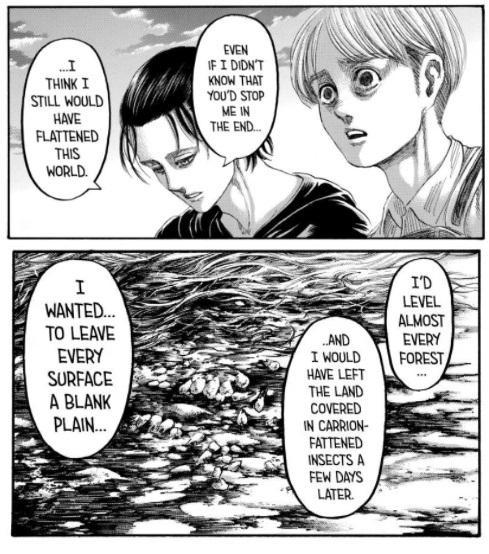
Conclusion
Ultimately, Attack on Titan’s depiction of “time travel” is less about traversing alternate timelines and more about transmitting memories within a single, closed timeline. The Attack Titan sees future events (shaped by the wielder’s own will), and the Founding Titan’s Paths allow those events to anchor themselves in the past. This cycle forms an unbreakable loop, ensuring that the fate Eren glimpses is the fate he brings to life—no matter how horrifying.
So, while it might look like Eren is helpless in the face of destiny, the truth is more bittersweet: he’s trapped by his own desires and the single timeline’s rules. He chooses to walk the path he’s shown, effectively binding himself to the 80% Rumbling outcome. In this way, Eren Yeager’s tragedy lies not in having no choice—but in having a singular, unwavering conviction that makes him want the future he sees, ensuring it can’t unfold any other way.
If you're interested in more of my thoughts on the subject of Eren and whether he had a choice, here's another post I wrote on the topic:
#eren yeager#eren jaeger#attack on titan#shingeki no kyoujin#shingeki no kyojin#aot#snk#attack on titan meta#aot meta#snk meta#aot eren#aot.meta#meta.eren#c: eren yeager#my thoughts#goodness this post took me FOREVER to write lol
86 notes
·
View notes
Text
What the “freedom” panel represents - AOT:
Imagine a seed: seeds can develop and become trees.
Imagine that people are like trees with these parallels: kids get innate characteristics because of the genetics of their parents, giving them the first range of possibilities, and thus the limits, that the kid will have.
The way that the kid develops and are born (health of the mother, traumas while in-utero and various birth conditions) give other possibilities and limits. Since we're all humans all of us have mostly the same abilities and limits, but then the subjective differences come in:
Some are born fast, some are born smart, some are born rich and some are born without any limbs, but regardless we've to keep on going forward for the analogy.
Now the kid is born, welcome to the world. Throughout its life, while growing up, events will happen that'll shape that person. Every event shapes the person. You yourself would've been different if 3 years ago you had to fight in a trench under mortar fire.
The way that a person will develop is limited by what a person is.


Different people will develop in different ways because of this and you already know it, deep down. Like trees they'll react differently to wind, rain, terrain, traumas and nutrients.
This means that at the core people always remain themselves, but they can change their "shape.” A person may become more composed, confident, well spoken, but they'll always remain what they really are.
EREN

 WHO is Eren?
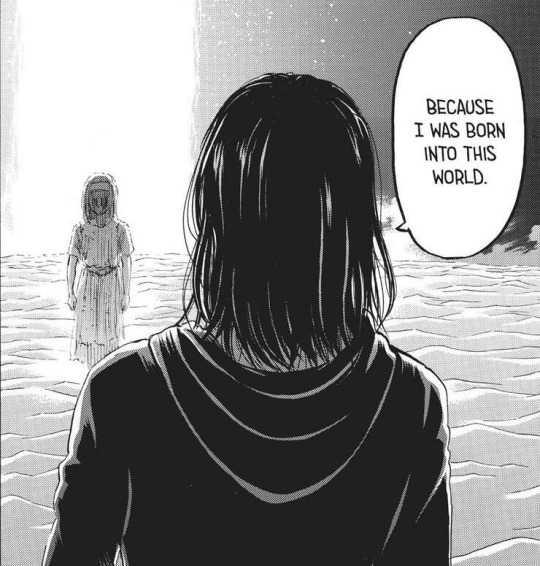
Eren is one of the people that values freedom, his and others', more than anything else in the world.

His scope became larger, his thoughts more complex but his desire the same.
Everyone has something at its core that drives us. This something is the guiding light that subconsciously drives one to act.
NOBODY has EVER done EVERYTHING alone.

From the moment that one's born people receive help from others. Even if one becomes an eremite they'll survive with the knowledge from others.
Ymir wasn't able to free herself because she didn't have the ability to do so.
She's doing nothing during the rumbling. She's just watching, watching someone that for the first time since her childhood does something for her. Even if it's something disgusting it's something that she in part wants because she's tired, tired of it all.
Eren became an agent of "good,” even going against some of its smaller desires, because:

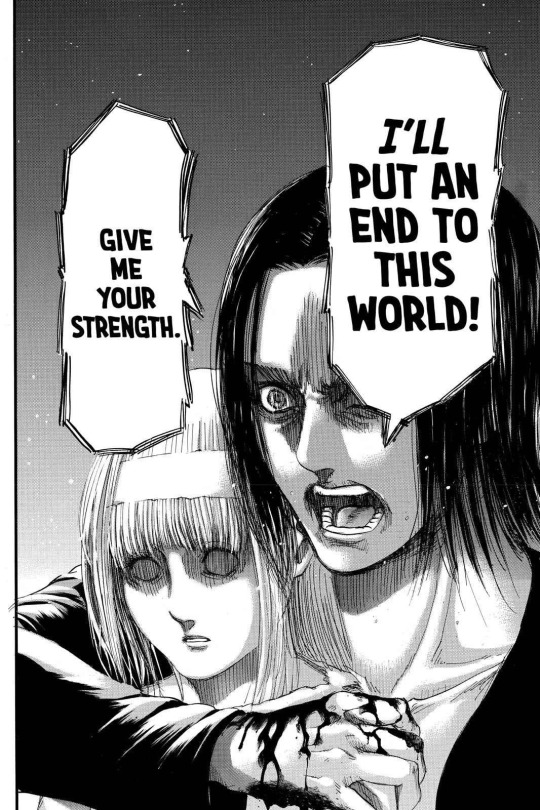

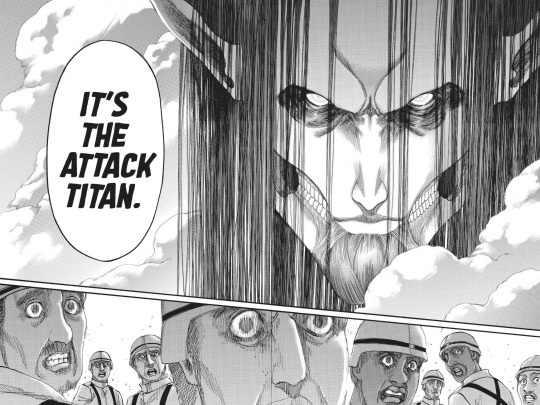
So, to finish:
what we see in the Freedom Panel is not past Eren, it is not Eren splitting his personality or regressing into a childhood-like state and it's not a facade, but it's just Eren's core showing, without the filters and workings of what's Eren now.
#eren yeager#aot 139#eren aot#aotnorequiem#snk meta#snk#analysis#aot analysis#freedom#eren jaeger#attack on titan#shingeki no kyoujin eren#shingeki no kyojin
45 notes
·
View notes
Text
Attack on Titan + Evangelion spoilers
Bertholdt and Shinji are so similar it's not funny anymore....;;
- Dark- haired, thin looking teenagers. Polite and formally dressed, regarded as timid and quiet by others.
- No "will of their own", but still very talented at what they do (Shinji being the best pilot, Bert being a powerful Warrior). People call them p*ssies but they're actually... Badasses despite their insecurity (do people forget Shinji had the most Angel kills?).
- Low self- esteem, a tendency to emotionally distance themselves from the people around them and close off. Shinji is canonically depressed, Bert seems depressed (the way I see it, at least) as well.
- They deliberately choose not to make choices of their own due to their own issues and this harms the relationships they have. However, they do find the resolve to make an extremely important choice, even if these choices are in very different situations and have very different outcomes.
- The peak of their development also has a similar theme around nihilism and meaning.
- Both control huge flesh beings (the EVA, the CT) for their fathers and become "gods of destruction" at one point (Shinji becoming God in EoE to trigger the Third Impact).
- Both have some weird- ass dreams.
I usually say Attack on Titan from Bert's POV is literally NGE as a joke, but I never sat down and listed the reasons until now.
#neon genesis evangelion#well this got too meta#shinji ikari#bertholdt hoover#bertolt fubar#attack on titan#shingeki no kyojin#shingeki no kyoujin#nge spoiles#aot spoilers
30 notes
·
View notes
Text
I remember someone asking me if I know @kasumi_kasa on Twitter (my answer is yes) and I saw the latest tweets about Omukuji. From Kasumi’s explanation they are fortune telling cards, so I would like to give my interpretations on EMA’s cards as they have “Excellent luck” (Daikichi).
Eren
From Kasumi’s translation, the advice (?) for Eren was “If you keep your heart honest and strong and believe in everything, the future will eventually open up for you”.
I think this advice is very relevant to Eren’s current state as he is in the debate between his selfishness (do whatever it takes to achieve his personal “freedom” and simply move forward) and selflessness (fight for the freedom of his people and friends). Eren needs to understand what exactly his heart wants and be honest with himself (did he do everything for himself or his people, or it’s both?).
I am not quite sure what “everything” means, because...well...it’s everything, but it might be believing in goodness and badness of both sides (World and Paradis/Eldians).
Wish: When the time comes, it will come true.
The sentence itself is quite ambiguous, because it can be interpreted differently, but I think it might mean two things:
1. Eren’s wish to exterminate all the titans will come true (especially if Ymir helps him).
2. Eren’s goal to become the “villian” to eventually end the cycle of hatred and all the past mistakes (again, breaking the curse and exterminating the curse will contribute into it).
3. His actual intention might be revealed (POV and the reason like in ch.131).
Expected visitor: It’s coming.
Expected visitor is present in all EMA’s predictions (?). So both 3 will see someone or something (depending on what “it” means). It might be Mikasa, but we still yet need to know how exactly she should come as these predictions were made after ch.138.
Missing thing: It’s near you.
This one is very interesting. What is the thing that Eren thinks he misses (in terms of what he doesn’t have)? Freedom. Eren has been chasing freedom since he was a child, but did he find it? No and I don’t think he will find the “freedom” he is searching for, because Eren himself doesn’t know what exactly his “freedom” is.
As a child, his “freedom” was seeing the outside world from Armin’s books. As a teenager, his objective slightly changed to getting revenge on titans and then, eventually, seeing the ocean and world.
But was he when they finally reached the ocean? No. Eren was upset, because the presence of an even bigger enemy meant that his freedom is nowhere near unless he destroys others. But does destroying the world mean that Eren will finally be free? No. Why? Because Eren himself doesn’t know what he is chasing. Freedom for him is something that he has never experienced and blindly has searched for until he became a slave to his idea of “freedom”.
Eren thinks that freedom will give him happiness and he will be happy only when he achieves it. But the problem is that the more he “obeys” his idea, the more unhappy he becomes. Now, he almost lost everyone who sincerely believed and fought for him.
This sentence says that Eren’s happiness (a.k.a his “freedom”) was always near him. And that’s his friends and Mikasa. Eren needs to free himself from his own “master”, which Eren created and that’s his superficial idea of freedom.
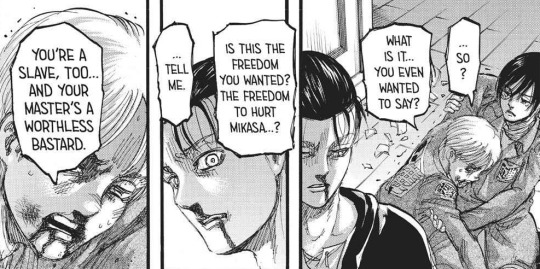
This idea is worthless, because it doesn’t bring anyone actual freedom and happiness. It broke Mikasa’s heart, hurt Armin and killed so many innocent people. It totally doesn’t worth it.
But another missing thing could be Mikasa and as it’s coming, it could also imply that Mikasa will come to him again (like...she kinda did in ch.138...?)
Game and match: Restrain your ego.
Eren’s ego is what used to cause him to fight with bullies, fueled his desire to get stronger and be free from Mikasa’s protection, and now pushes him to move forward, because Eren doesn’t want to lose (bringing iconic “If you win, you live. If you lose, you die. If you don’t fight, you can’t win”). Yes, he does want to be stopped (and was by someone), but even like that, he still continued to fight (he even turned into a colossal to fight Armin).

But since, in Armin and Mikasa’s cards, it’s written “win”, Eren has nothing to do, but to respectfully give us and tame his ego.
Study: Study with peace of mind.
This one is a bit unclear to me (and when I translated it, it showed “learning” as another possible translation), but if it’s related to learning something, maybe Eren will need to learn to give more importance on the present and learn to live in the moment rather than living in his thoughts, past, future, guilt.
If we look at ch.90 and ch.123, when his friends were having good time at the beach and Marley, Eren was wandering in his thoughts thinking about how cruel and uneven the world is, and how he wants to get revenge on it.
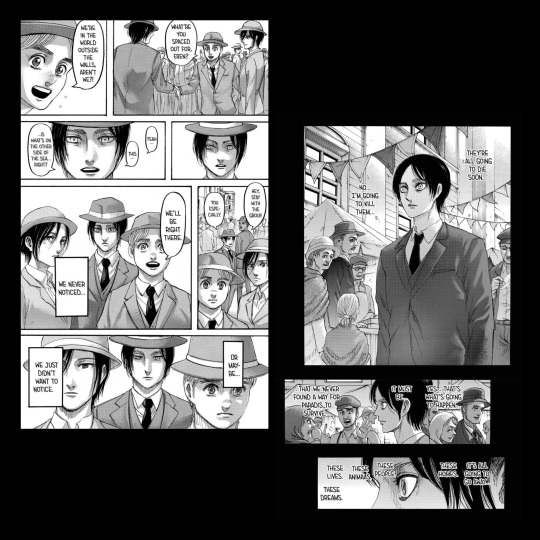


Even in ch.138, when he and Mikasa were living alone, far away from everyone, Eren was still consumed in guilt and responsibilities.
If Eren doesn’t restrain his ego and free himself from his “master”, he will never learn how to live a peaceful and happy life he secretly desires about.
Mikasa
So moving to Mikasa. The advice for her was “Do what is right and help those who are lost and you will be better”.
This one is pretty straightforward. Mikasa opposed the person she loves and chose to fight Eren to save humanity from destruction. In general, Mikasa’s character is about saving people and she values human life the most as she almost lost hers back in time. Even though, Isayama said that staying with Eren for Mikasa is a good thing and if she didn’t have strong morals (she would follow Eren), she can’t give up on saving other people’s lives.

Wish: You will get what you want. Don’t let your guard down.
The first part is clear as Mikasa will reunite with Eren and hopefully have a life with him, but the second part is quite interesting. So I think it might suggest that even though Mikasa loves Eren and wants to be by his side, she shouldn’t let her desires overpower her morals. Again, coming back to ch.138, Mikasa chose to run away with Eren and let her selfish wish to be with him take over her. She chose to stay away from fighting and let others’ lives to be in danger.
Mikasa needs to continue sticking to what she believes in and do the right thing to get what she wants.
Expected visitor: It’s coming.
Same as I said in Eren’s part.
Missing thing: It’ll be late, but it will come.
This sounds intriguing, because what exactly can come late? I think it might be related to her wish and desire to live a peaceful life as it might come slowly...? (If we take into the account that Paradis will probably still have some issues to deal with and peace won’t come instantly).
On another note, Eren’s arrival can be late too (in some ways..?), so it’s also plausible to say that the missing thing for them is each other.
Game and match: Win.
So since Mikasa is a part of alliance, they will “win” (even now they kinda did by stopping colossals) and Eldians (probably) will be viewed as saviors (though on island they are traitors as the majority of population was pro-rumbling).
Love: There’s happiness in this person.
Mikasa represents love, freedom and pride and as the statement suggests, there’s happiness in her. What Eren actually needs is happiness, so EM things again.
But even like this, I won’t say that Eren will instantly will become lucky and forget about his trauma. It will be a long learning process (as his card said), but Mikasa will greatly and positively influence his adjustment to a normal and peaceful life (especially since they will very likely live in mountains and as Grisha said in “Lost Girls” he thought that fresh air will positively help Eren’s anger issues).

So the presence of Mikasa, fresh air and calm atmosphere will help Eren learn to live in the moment and cherish what he has without going for something that doesn’t properly exist.
Armin
The advice for Armin is “Make a decision before and you will move forward, work diligently and you will be happy”.
It’s heavily related to Armin’s new role in life, 15th commander of Survey Corps and the position suggests, Armin from now is responsible for the lives and decisions of his subordinates. Of course, for now because of his inner struggles and doubt, Armin isn’t happy about his career advancement, but if he surrounds himself with good and diligent people, and gain some confidence, he will overcome his current problems.
Wish: Two wishes won’t come at once.
What are Armin’s wishes? His first wish was to travel the outside world and explore the unknown with Eren, but as he himself said in ch.131, that wasn’t quite what they dreamed about.
However, Armin still wants to believe that there’s still a world that they don’t know about past the walls (might be a reference to the miracle that Uri was talking about).
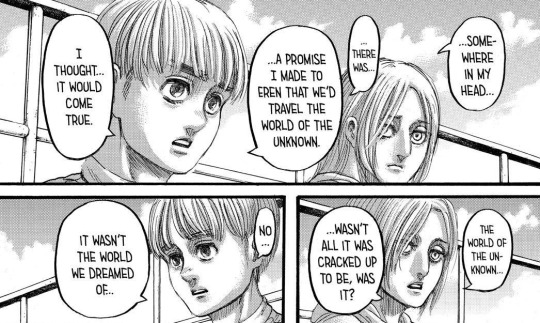

So going back to peaceful times and exploring the world definitely won’t come at once (he still has duties and issues to deal with), but slowly and surely will.
Expected visitor: It’s coming
Same as Mikasa and Eren.
Missing thing: It’s in a high place.
This one has 2 potential meanings:
1. Armin misses Erwin and Hange as they were his previous commanders and he would want some guidance from them. Even now, Armin (as a newly assigned commander), he thinks how these two would handle this situation (especially Erwin).

2. The other thing that Armin (possibly) misses are the good old days that both three of them wanted to go back. After all, every character somehow wants to have a peaceful life with no war and hate. So saying that this thing is in a high place might mean that it won’t be easy to achieve and they will still need to deal with negotiations etc. But it will come eventually.
Game and match: Win
Same as Mikasa.
Study: you will overcome difficulties
I am really glad about this one, because it means that Armin will overcome his insecurities and doubts, and will gain his confidence! Again, I am heavily manifesting a talk between him and Levi, so seeing him overcoming his flaws and becoming a great commander is more than anything I could ask for Armin *cries*.
The links to the translations:
Eren, Mikasa, Armin.
#wow I am posting again#eren jaeger#mikasa ackerman#eremika#armin arlert#ema#attack on titan#shingeki no kyoujin#meta#analysis
65 notes
·
View notes
Text
CHAPTER 139 THOUGHTS!!!
‼️ After this line if you do not want to see any spoilers please do not keep reading! ‼️
First things first, I had already read the spoilers, leaks, and the “official” release but haven’t had time to correlate my thoughts together because of my exam + the utter emotional DISTRAUGHT I felt knowing SnK had ended. That plus my initial reaction to the spoilers and chapter was not good. I actually was furious at it but now that i’ve had enough time to process here are my THOUGHTS!
FIRST THINGS FIRST THE OPENING The beginning of getting answers from Eren. Finally. Overall knowing that it was Armin’s point of view we saw from was pretty fitting knowing how close those two have been since childhood. Before even Mikasa was Armin. That will always be true.
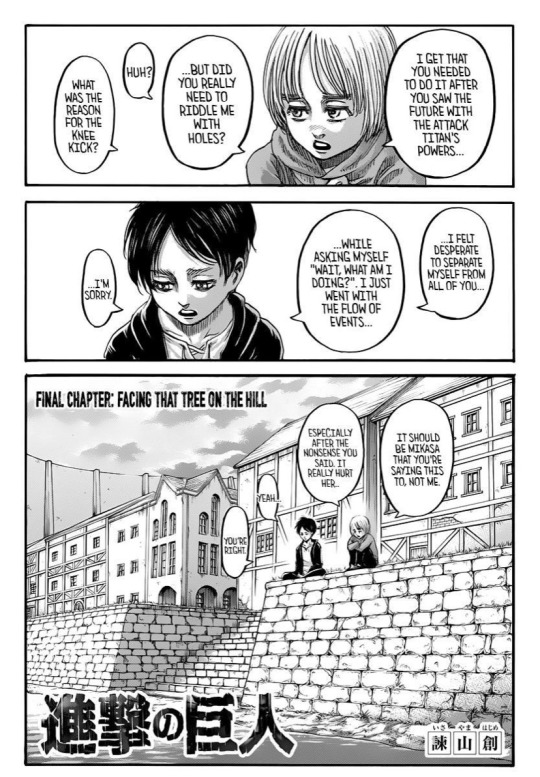
Through the course of their talk, I felt really uncomfortable like I know something was off. It didn’t feel like Eren, from everything he said to the way he had explained away his actions
But after processing it for a while, just like everyone else, we as the readers didn’t know the true Eren. Yes he is a passionate loving head strong person but we kind of forgotten that in the end, he really was just a kid.
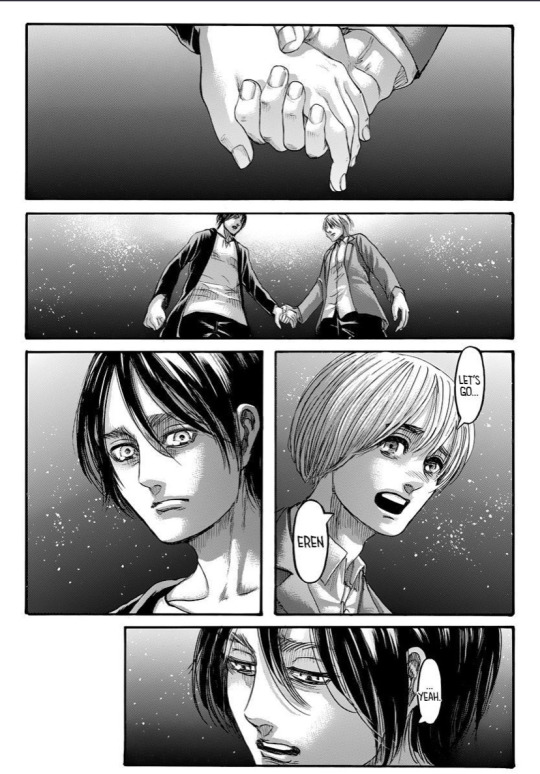
Eren was burdened with war. He’s been burdened since the day he was born and we all knew that. HE LOOKS SO PRETTY HERE. But It broke my heart knowing no matter what choices he made, he would always end up back here.

Man THIS. THIS IS THE MOST HUMAN REACTION. I heard this was a mistranslation and that he just says that he doesnt want to be forgotten which makes sense because HELLO MIKASA HAS ALWAYS BEEN THE PERSON TO TAKE CARE OF HIM!! Eren is HUMAN and hes a 19 year old boy. He deserves to want to live.
This parallels the opening scene of the manga where Carla gets eaten and although she sacrifices herself, she had wanted to live. She didnt want to be abandoned.
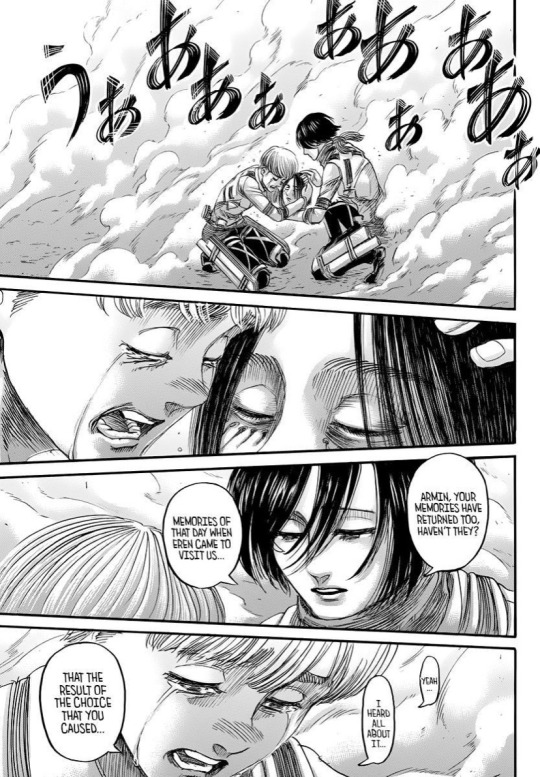
I dont know why Armin made me mad here HDISJIDJS I know he has no memory of what happened but DAMN YOUR BOY JUST COMMITTED GENOCIDE HOMIE!! Still I cried so I don’t even know why i’m complaining. This broke my heart to pieces. EMA best trip

Okay so realistically them being all heart broken over eren makes little to no sense but knowing that he reached out to talk and explain to each of them his motives and just what was happening HURTS ME. IT HURTS. EREN KNEW EVERYTHING. HE LOVED EACH OF THEM SO DEEPLY PLAYED THE VILLAIN ROLE AND (WITH MIKASA) BROKE THE CURSE. I’m so sad. Just knowing he took the brunt of everyone’s anger only to become some sort of shackled poster villain is so sad.

THIS LEADING UP TO MY NEXT BIT. Levi deserves his rest. He deserves this. Oh man I cried tears of joy knowing he’s alive. But thinking that Eren had pulled him aside too, I want to know what they’re talk was like. What did they say to each other? Levi and Eren had one of the most riveting complex relationships in the manga. MY CURIOSITY AHH maybe Isayama left it up to the readers knowing that? Who knows.

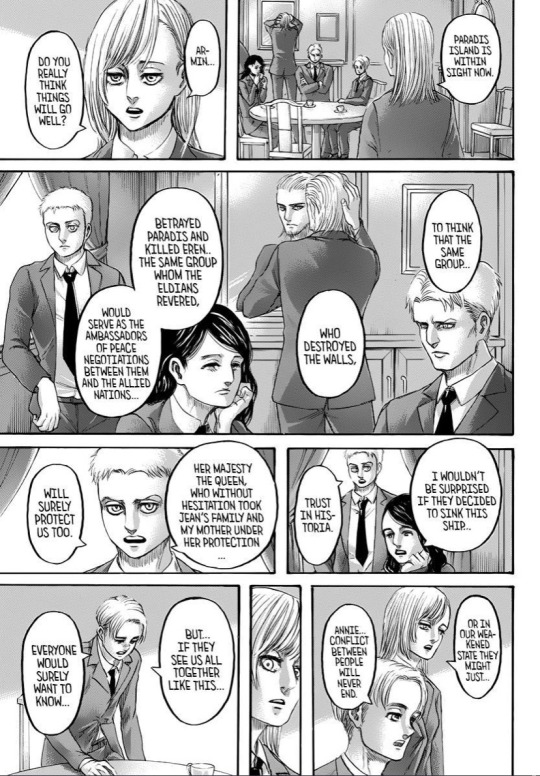
AWW HISTORIA’S BABY!!! And everyone kind of aligning themselves together makes me happy. Warriors and Survey corps TOGETHA!! Man. The fact that Eren entrusted them with the world still leaves a heavy feeling in my heart. The boy who wanted to live needed to die. My baby boy.
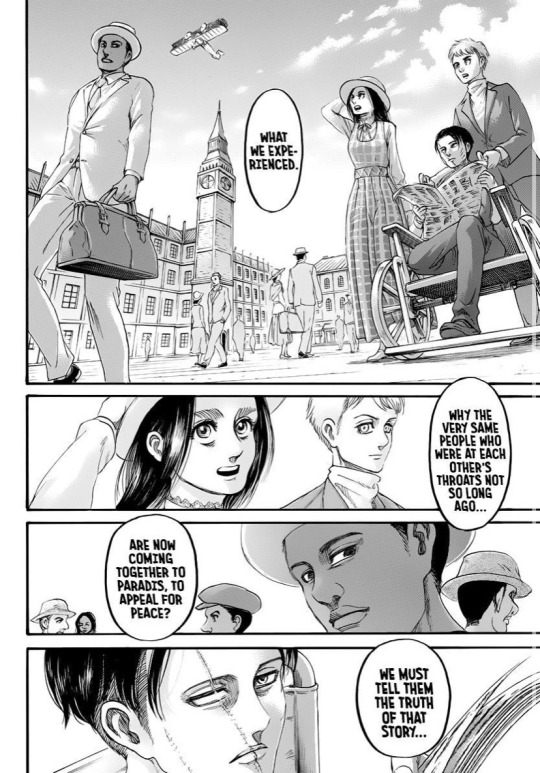
THIS SCENE!! okay the cuteness of Gabi and Falco Aside, Levi finally being able to REST!! YESSS LETS GO I LOVE YOU KING!! Him looking up like thay makes me feel like he’s remembering Eren. I don’t have a solid reason. I just like to think that.
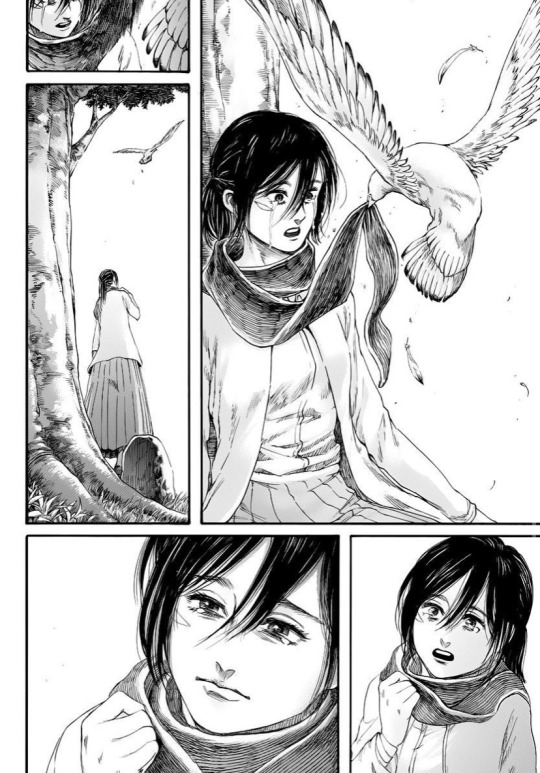
Man. MIKASA LITERALLY DESERVES THE WORLD. I feel the pain she has with the loss of Eren. It hurts deep. It literally had me crying in my bed. Knowing that he died and how will always haunt me. But dude Mikasa. The things she went through. I hope she’ll move on or learn to be happy in a world that Eren’s no longer in. Those two wanting to be with each other even when they couldn’t is seriously tragic. Whether platonic or romantic, Eren and Mikasa have such a deep relationship.
ANYWAY THATS EVERYTHING!!
I’m still in pain but the thing about AoT is that all those plot holes, we end up filling with our own theories and fixing with our own fix-it fics/aus. Seriously it wasn’t the worst ending and who’s to say we can’t come up with our own happy ending?
#rivaere#aot#aot chapter 139 spoilers#aot chapter 139#Eren Jaeger#mikasa ackerman#levi ackerman#armin arlert#shingeki no kyoujin#attack on titan meta#meta
31 notes
·
View notes
Text
eren's descent into villainy (that now includes him basically forcing his friends to live out their lives in a never-ending nightmare by turning them into titans) really puts his character in perspective. like for example the time when he killed mikasa's kidnappers. it has such a different implication to it now. from a moral standpoint - yes, they obviously did deserved it. he did what needed to be done. but what kind of child is just able to go and murder someone like that? what's the psychology behind it? a normal child would be absolutely terrified and break down or freeze. he's always had those psychopathic tendencies; running into danger head-on, like a "suicidal maniac" with almost no fear at all. all of the trauma, extreme circumstances and insane amount of power just brought this out.
he's a pretty good deconstruction of a typical super hero, because exerting dominance, being fearless and calm in the face of overwhelming odds, and able to always put your life on the line, if needed be, are all traits of a classic super hero. but it's been given this very dark and realistic twist here. he's like a superhero straight from the twilight zone.
#snk 138#aot 138#snk spoilers#attack on titan#shingeki no kyoujin#snk#aot#eren jaeger#eren yaeger#eren jeager#eren yeager#aot meta#mine
226 notes
·
View notes